

As we step into 2024, we are leaving behind a year stirred by major events — from politics to economy, conflicts to reconciliations, and countless decisive moments that have reshaped the global landscape. China Daily will review the moments that have changed the world while looking at what's in store the coming year.
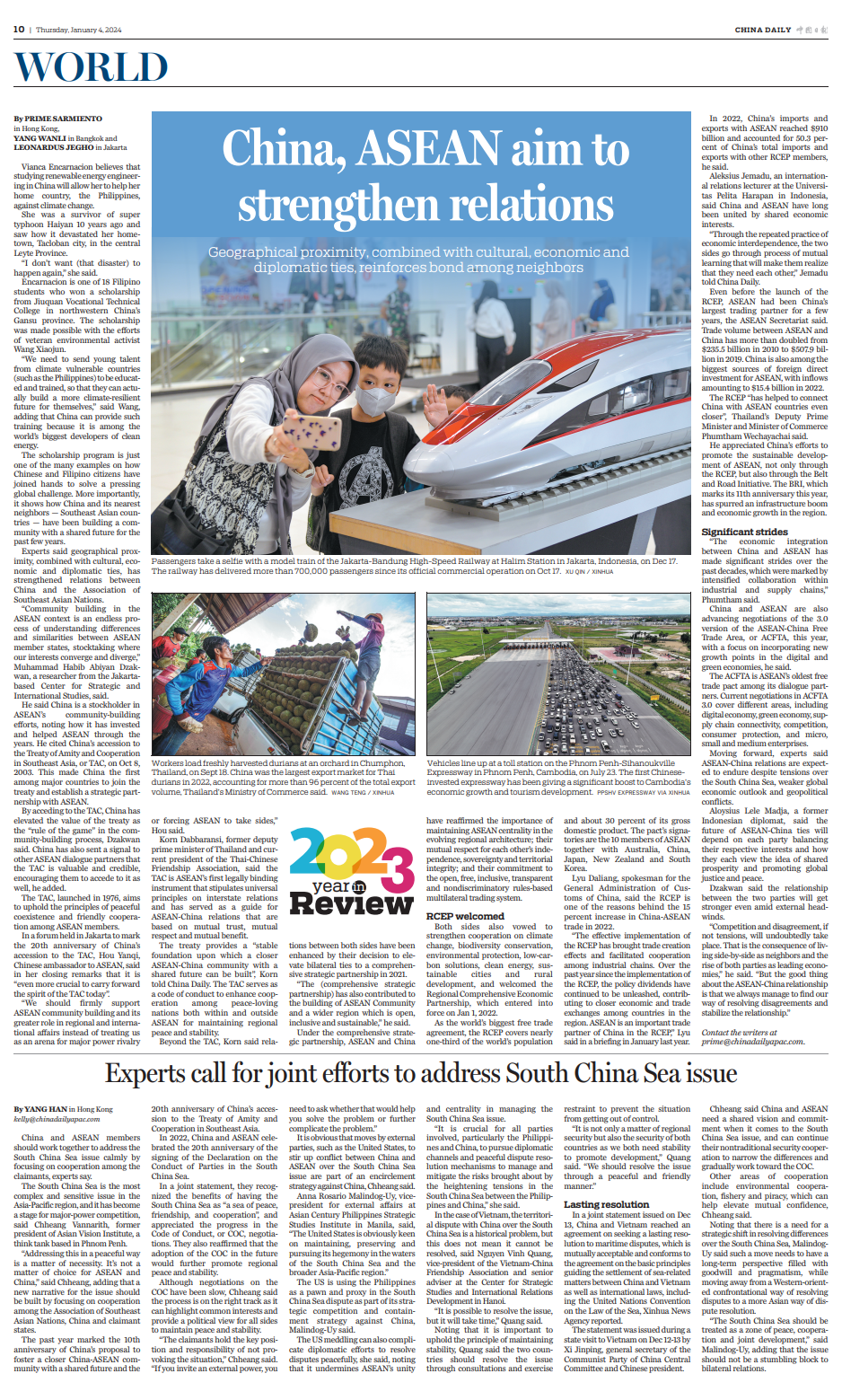
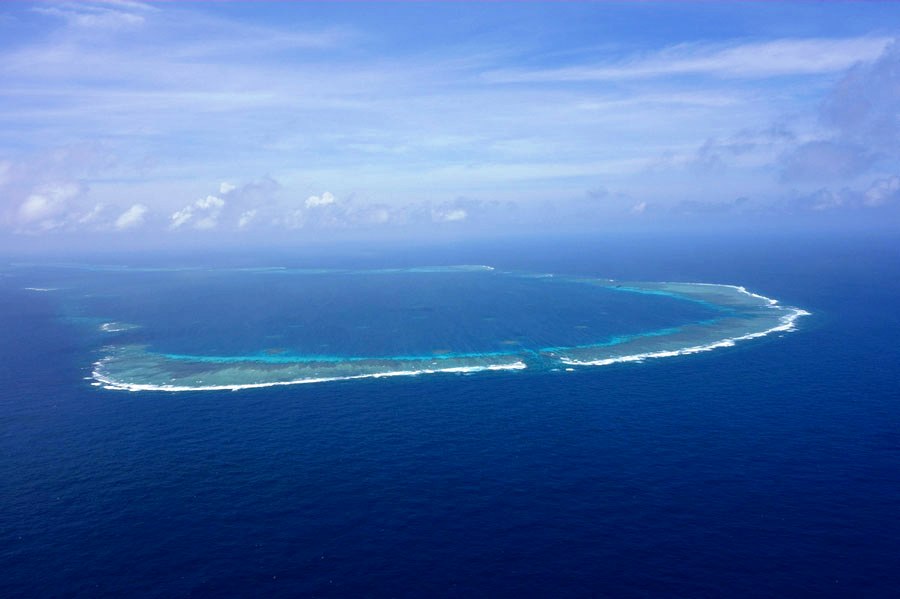
China and ASEAN members should work together to address the South China Sea issue calmly by focusing on cooperation among the claimants, experts say.
The South China Sea is the most complex and sensitive issue in the Asia-Pacific region, and it has become a stage for major-power competition, said Chheang Vannarith, former president of Asian Vision Institute, a think tank based in Phnom Penh.
"Addressing this in a peaceful way is a matter of necessity. It's not a matter of choice for ASEAN and China," said Chheang, adding that a new narrative for the issue should be built by focusing on cooperation among the Association of Southeast Asian Nations, China and claimant states.
The past year marked the 10th anniversary of China's proposal to foster a closer China-ASEAN community with a shared future and the 20th anniversary of China's accession to the Treaty of Amity and Cooperation in Southeast Asia.
In 2022, China and ASEAN celebrated the 20th anniversary of the signing of the Declaration on the Conduct of Parties in the South China Sea.
In a joint statement, they recognized the benefits of having the South China Sea as "a sea of peace, friendship, and cooperation", and appreciated the progress in the Code of Conduct, or COC, negotiations. They also reaffirmed that the adoption of the COC in the future would further promote regional peace and stability.
Although negotiations on the COC have been slow, Chheang said the process is on the right track as it can highlight common interests and provide a political view for all sides to maintain peace and stability.
"The claimants hold the key position and responsibility of not provoking the situation," Chheang said. "If you invite an external power, you need to ask whether that would help you solve the problem or further complicate the problem."
It is obvious that moves by external parties, such as the United States, to stir up conflict between China and ASEAN over the South China Sea issue are part of an encirclement strategy against China, Chheang said.
Anna Rosario Malindog-Uy, vice-president for external affairs at Asian Century Philippines Strategic Studies Institute in Manila, said, "The United States is obviously keen on maintaining, preserving and pursuing its hegemony in the waters of the South China Sea and the broader Asia-Pacific region."
The US is using the Philippines as a pawn and proxy in the South China Sea dispute as part of its strategic competition and containment strategy against China, Malindog-Uy said.
The US meddling can also complicate diplomatic efforts to resolve disputes peacefully, she said, noting that it undermines ASEAN's unity and centrality in managing the South China Sea issue.
"It is crucial for all parties involved, particularly the Philippines and China, to pursue diplomatic channels and peaceful dispute resolution mechanisms to manage and mitigate the risks brought about by the heightening tensions in the South China Sea between the Philippines and China," she said.
In the case of Vietnam, the territorial dispute with China over the South China Sea is a historical problem, but this does not mean it cannot be resolved, said Nguyen Vinh Quang, vice-president of the Vietnam-China Friendship Association and senior adviser at the Center for Strategic Studies and International Relations Development in Hanoi.
"It is possible to resolve the issue, but it will take time," Quang said.
Noting that it is important to uphold the principle of maintaining stability, Quang said the two countries should resolve the issue through consultations and exercise restraint to prevent the situation from getting out of control.
"It is not only a matter of regional security but also the security of both countries as we both need stability to promote development," Quang said. "We should resolve the issue through a peaceful and friendly manner."
Lasting resolution
In a joint statement issued on Dec 13, China and Vietnam reached an agreement on seeking a lasting resolution to maritime disputes, which is mutually acceptable and conforms to the agreement on the basic principles guiding the settlement of sea-related matters between China and Vietnam as well as international laws, including the United Nations Convention on the Law of the Sea, Xinhua News Agency reported.
The statement was issued during a state visit to Vietnam on Dec 12-13 by Xi Jinping, general secretary of the Communist Party of China Central Committee and Chinese president.
Chheang said China and ASEAN need a shared vision and commitment when it comes to the South China Sea issue, and can continue their nontraditional security cooperation to narrow the differences and gradually work toward the COC.
Other areas of cooperation include environmental cooperation, fishery and piracy, which can help elevate mutual confidence, Chheang said.
Noting that there is a need for a strategic shift in resolving differences over the South China Sea, Malindog-Uy said such a move needs to have a long-term perspective filled with goodwill and pragmatism, while moving away from a Western-oriented confrontational way of resolving disputes to a more Asian way of dispute resolution.
"The South China Sea should be treated as a zone of peace, cooperation and joint development," said Malindog-Uy, adding that the issue should not be a stumbling block to bilateral relations.
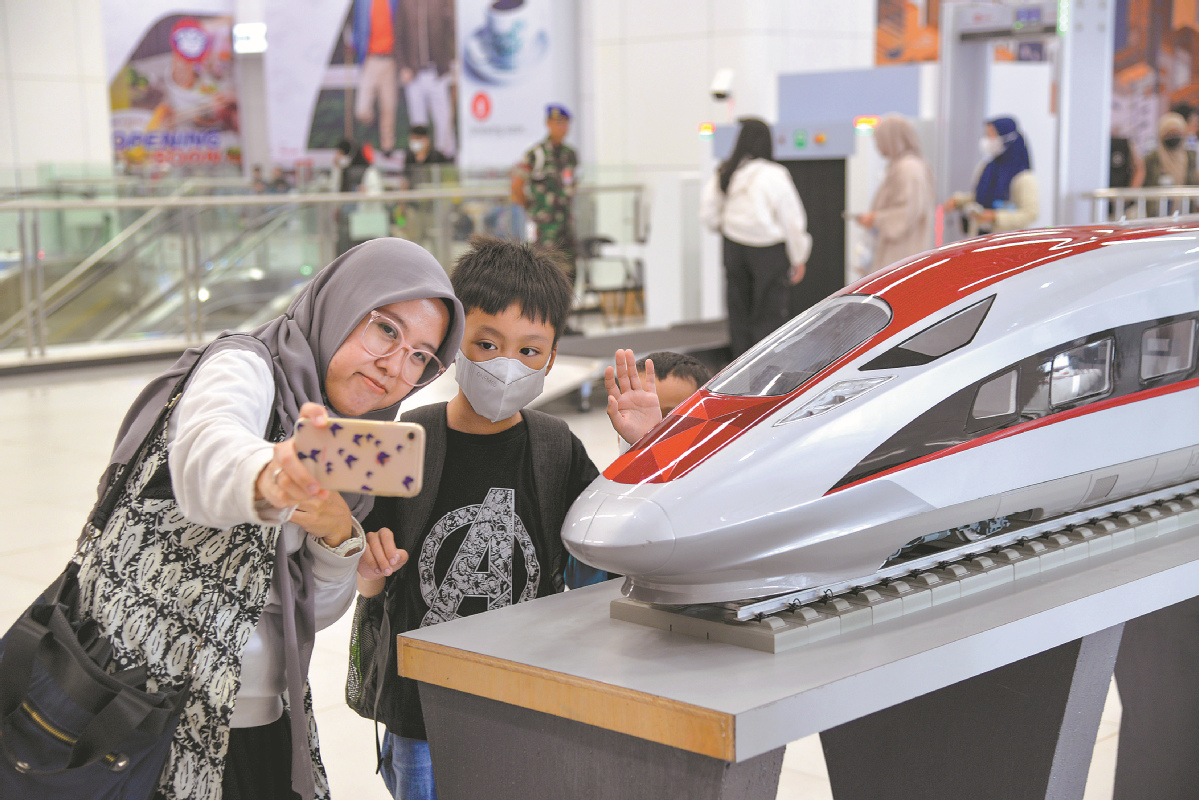
Geographical proximity, combined with cultural, economic and diplomatic ties, reinforces bond among neighbors
Vianca Encarnacion believes that studying renewable energy engineering in China will allow her to help her home country, the Philippines, against climate change.
She was a survivor of super typhoon Haiyan 10 years ago and saw how it devastated her hometown, Tacloban city, in the central Leyte Province.
"I don't want (that disaster) to happen again," she said.
Encarnacion is one of 18 Filipino students who won a scholarship from Jiuquan Vocational Technical College in northwestern China's Gansu province. The scholarship was made possible with the efforts of veteran environmental activist Wang Xiaojun.
"We need to send young talent from climate vulnerable countries (such as the Philippines) to be educated and trained, so that they can actually build a more climate-resilient future for themselves," said Wang, adding that China can provide such training because it is among the world's biggest developers of clean energy.
The scholarship program is just one of the many examples on how Chinese and Filipino citizens have joined hands to solve a pressing global challenge. More importantly, it shows how China and its nearest neighbors — Southeast Asian countries — have been building a community with a shared future for the past few years.
Experts said geographical proximity, combined with cultural, economic and diplomatic ties, has strengthened relations between China and the Association of Southeast Asian Nations.
"Community building in the ASEAN context is an endless process of understanding differences and similarities between ASEAN member states, stocktaking where our interests converge and diverge," Muhammad Habib Abiyan Dzakwan, a researcher from the Jakarta-based Center for Strategic and International Studies, said.
He said China is a stockholder in ASEAN's community-building efforts, noting how it has invested and helped ASEAN through the years. He cited China's accession to the Treaty of Amity and Cooperation in Southeast Asia, or TAC, on Oct 8, 2003. This made China the first among major countries to join the treaty and establish a strategic partnership with ASEAN.
By acceding to the TAC, China has elevated the value of the treaty as the "rule of the game" in the community-building process, Dzakwan said. China has also sent a signal to other ASEAN dialogue partners that the TAC is valuable and credible, encouraging them to accede to it as well, he added.
The TAC, launched in 1976, aims to uphold the principles of peaceful coexistence and friendly cooperation among ASEAN members.
In a forum held in Jakarta to mark the 20th anniversary of China's accession to the TAC, Hou Yanqi, Chinese ambassador to ASEAN, said in her closing remarks that it is "even more crucial to carry forward the spirit of the TAC today".
"We should firmly support ASEAN community building and its greater role in regional and international affairs instead of treating us as an arena for major power rivalry or forcing ASEAN to take sides," Hou said.
Korn Dabbaransi, former deputy prime minister of Thailand and current president of the Thai-Chinese Friendship Association, said the TAC is ASEAN's first legally binding instrument that stipulates universal principles on interstate relations and has served as a guide for ASEAN-China relations that are based on mutual trust, mutual respect and mutual benefit.
The treaty provides a "stable foundation upon which a closer ASEAN-China community with a shared future can be built", Korn told China Daily. The TAC serves as a code of conduct to enhance cooperation among peace-loving nations both within and outside ASEAN for maintaining regional peace and stability.
Beyond the TAC, Korn said relations between both sides have been enhanced by their decision to elevate bilateral ties to a comprehensive strategic partnership in 2021.
"The (comprehensive strategic partnership) has also contributed to the building of ASEAN Community and a wider region which is open, inclusive and sustainable," he said.
Under the comprehensive strategic partnership, ASEAN and China have reaffirmed the importance of maintaining ASEAN centrality in the evolving regional architecture; their mutual respect for each other's independence, sovereignty and territorial integrity; and their commitment to the open, free, inclusive, transparent and nondiscriminatory rules-based multilateral trading system.
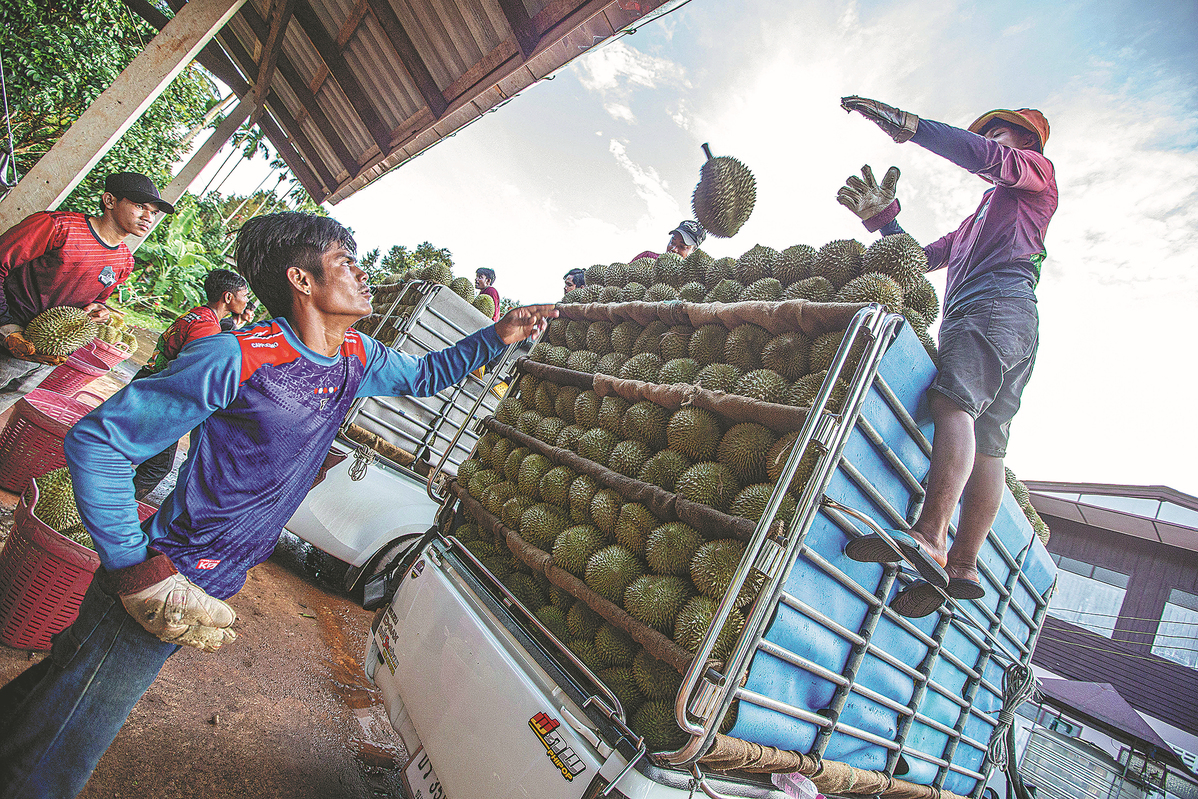
RCEP welcomed
Both sides also vowed to strengthen cooperation on climate change, biodiversity conservation, environmental protection, low-carbon solutions, clean energy, sustainable cities and rural development, and welcomed the Regional Comprehensive Economic Partnership, which entered into force on Jan 1, 2022.
As the world's biggest free trade agreement, the RCEP covers nearly one-third of the world's population and about 30 percent of its gross domestic product. The pact's signatories are the 10 members of ASEAN together with Australia, China, Japan, New Zealand and South Korea.
Lyu Daliang, spokesman for the General Administration of Customs of China, said the RCEP is one of the reasons behind the 15 percent increase in China-ASEAN trade in 2022.
"The effective implementation of the RCEP has brought trade creation effects and facilitated cooperation among industrial chains. Over the past year since the implementation of the RCEP, the policy dividends have continued to be unleashed, contributing to closer economic and trade exchanges among countries in the region. ASEAN is an important trade partner of China in the RCEP," Lyu said in a briefing in January last year.
In 2022, China's imports and exports with ASEAN reached $910 billion and accounted for 50.3 percent of China's total imports and exports with other RCEP members, he said.
Aleksius Jemadu, an international relations lecturer at the Universitas Pelita Harapan in Indonesia, said China and ASEAN have long been united by shared economic interests.
"Through the repeated practice of economic interdependence, the two sides go through process of mutual learning that will make them realize that they need each other," Jemadu told China Daily.
Even before the launch of the RCEP, ASEAN had been China's largest trading partner for a few years, the ASEAN Secretariat said. Trade volume between ASEAN and China has more than doubled from $235.5 billion in 2010 to $507.9 billion in 2019. China is also among the biggest sources of foreign direct investment for ASEAN, with inflows amounting to $15.4 billion in 2022.
The RCEP "has helped to connect China with ASEAN countries even closer", Thailand's Deputy Prime Minister and Minister of Commerce Phumtham Wechayachai said.
He appreciated China's efforts to promote the sustainable development of ASEAN, not only through the RCEP, but also through the Belt and Road Initiative. The BRI, which marks its 11th anniversary this year, has spurred an infrastructure boom and economic growth in the region.
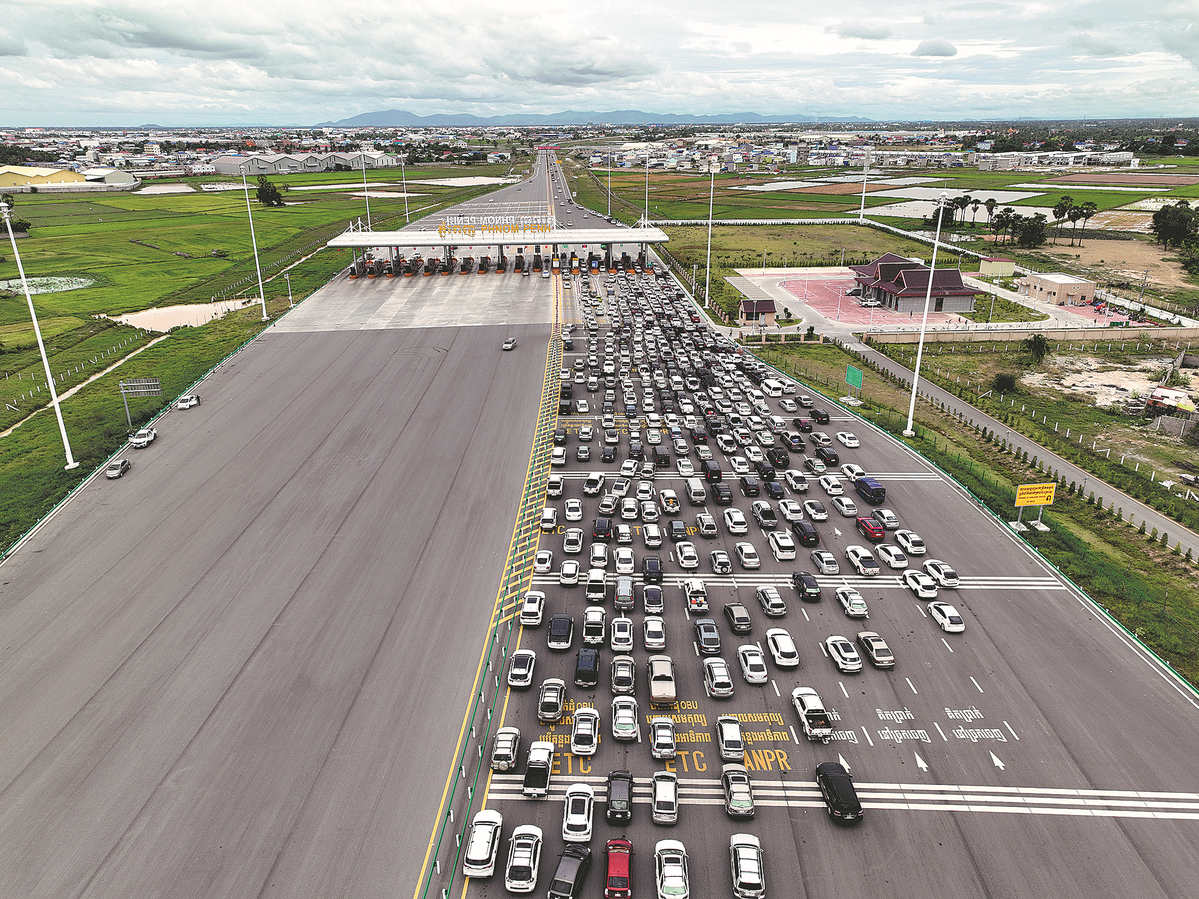
Significant strides
"The economic integration between China and ASEAN has made significant strides over the past decades, which were marked by intensified collaboration within industrial and supply chains," Phumtham said.
China and ASEAN are also advancing negotiations of the 3.0 version of the ASEAN-China Free Trade Area, or ACFTA, this year, with a focus on incorporating new growth points in the digital and green economies, he said.
The ACFTA is ASEAN's oldest free trade pact among its dialogue partners. Current negotiations in ACFTA 3.0 cover different areas, including digital economy, green economy, supply chain connectivity, competition, consumer protection, and micro, small and medium enterprises.
Moving forward, experts said ASEAN-China relations are expected to endure despite tensions over the South China Sea, weaker global economic outlook and geopolitical conflicts.
Aloysius Lele Madja, a former Indonesian diplomat, said the future of ASEAN-China ties will depend on each party balancing their respective interests and how they each view the idea of shared prosperity and promoting global justice and peace.
Dzakwan said the relationship between the two parties will get stronger even amid external headwinds.
"Competition and disagreement, if not tensions, will undoubtedly take place. That is the consequence of living side-by-side as neighbors and the rise of both parties as leading economies," he said. "But the good thing about the ASEAN-China relationship is that we always manage to find our way of resolving disagreements and stabilize the relationship."
Contact the writers at prime@chinadailyapac.com.
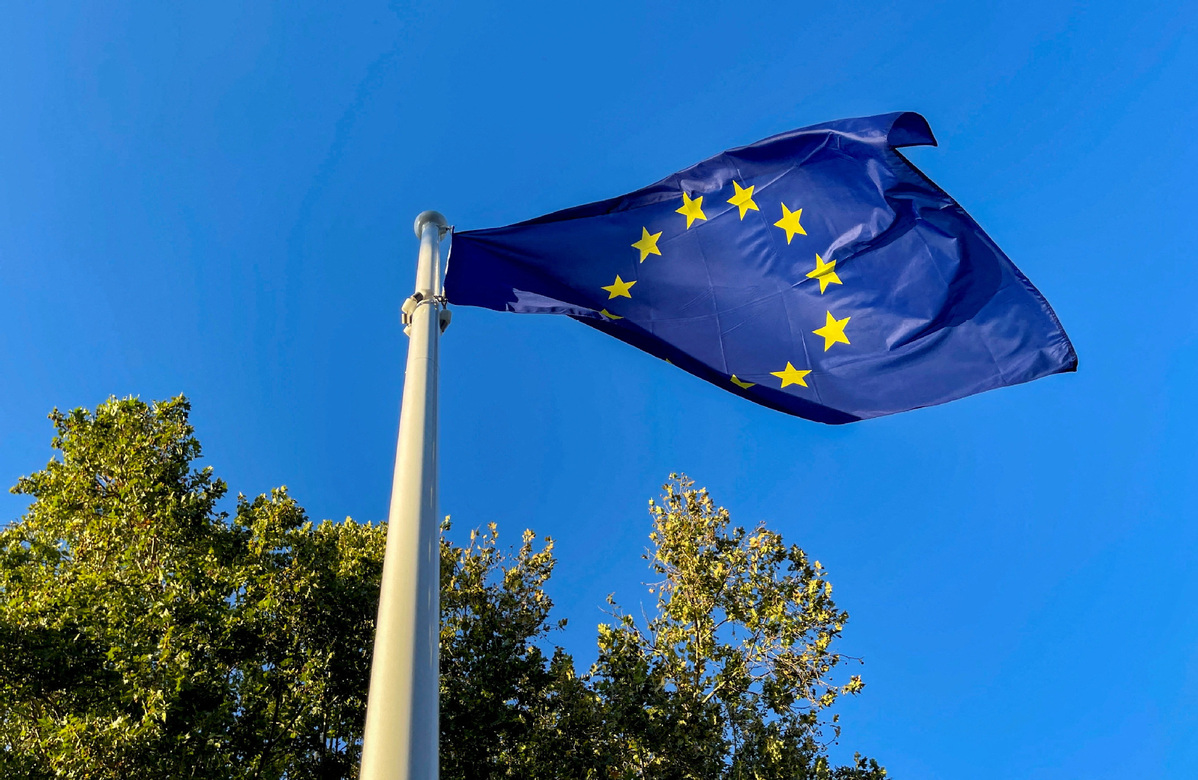
The European Union has continued its search for strategic autonomy amid greater challenges on both geopolitical and economic fronts.
French President Emmanuel Macron has been a passionate advocate when he pushed the EU's strategic autonomy in his speech at the Sorbonne University in Paris in 2017, a concept that first appeared in the EU defense document in 2013 and was then incorporated into the 2016 European Union Global Strategy document.
Macron caused a stir in early April when he said Europe must reduce its dependence on the United States and avoid getting dragged into a confrontation between China and the US over Taiwan.
While Macron's remark triggered backlash on both sides of the Atlantic, European Council President Charles Michel came to his defense by saying that European leaders are becoming increasingly favorable toward Macron's push for strategic autonomy away from the US.
Open strategic autonomy was the main topic of the informal meeting of EU heads of state and government in Granada, Spain, in October, during the six-month Spanish Presidency of the Council of the EU, which ended on Sunday.
The goal was to move toward a more competitive and resilient EU in the face of geopolitical and technological challenges in the world, especially when the EU was viewed as increasingly lagging behind the US and China.
The bloc believes the COVID-19 pandemic and the Russia-Ukraine conflict have taught a lesson that overdependence could pose a threat to its economy and the well-being of the 440 million EU citizens.
"Its aim is to find a new balance between security and competitiveness that will ensure the EU's future ability to act autonomously when and where required and to work with partners wherever possible," the Spanish presidency document said.
The document proposed nine lines of action to "tackle the vulnerabilities identified in a systemic and realistic way", including boosting internal production capacity, monitoring and limiting foreign ownership of some sectors and creating a contingency plan for future shortages.
While the document highlighted the need to rebalance economic relations with China, it stressed that China is an essential trading partner for the EU and the fact that decoupling from its economy is neither a viable nor a desirable option, a message that EU leaders also delivered at the 24th China-EU Summit in Beijing in early December.
The EU has made some progress on strategic autonomy when the European Parliament and the 27 members reached a provisional deal in April on the European Chips Act that aims to boost its competitiveness in semiconductor industry against the US and Asia rivals. The goal was to double the EU's global market share in semiconductors from 10 percent to 20 percent by 2030.
In November, the European Parliament and EU member states reached a deal on Critical Raw Materials Act proposed by the European Commission in March, an act that also aims to compete with the US and China in making clean tech products.
The proposal said the EU should extract 10 percent, recycle 15 percent and process 40 percent of its annual needs by 2030 for 16"strategic raw materials".
Wang Yiwei, director of the Institute of International Affairs at Renmin University of China, said the EU's pursuit of strategic autonomy reflects its increasing distrust of the current world amid a reversal of globalization, and in a world that is dominated by the US and China such as in artificial intelligence.
While the bloc's strategic autonomy targets both China and the US, Wang said he believes it will be impossible for the EU to get rid of the US when it comes to its dependence on defense, AI and internet search engines.
He questioned the EU's ability to achieve its goal, saying the bloc is "a giant of ideas but dwarf of action", adding that the Franco-German axis no longer exists.
Eva Michaels, a research fellow at the Barcelona Institute for International Studies, said the EU needs to avoid overrelying on others for both the anticipation of and response to international security crises.
"Europe cannot afford to be a bystander when confronted with security threats and challenges in its neighborhood, especially when Washington's long-term priorities lie elsewhere and when (the 2024) US presidential election risks undermining NATO," she wrote on the Engage EU blog.
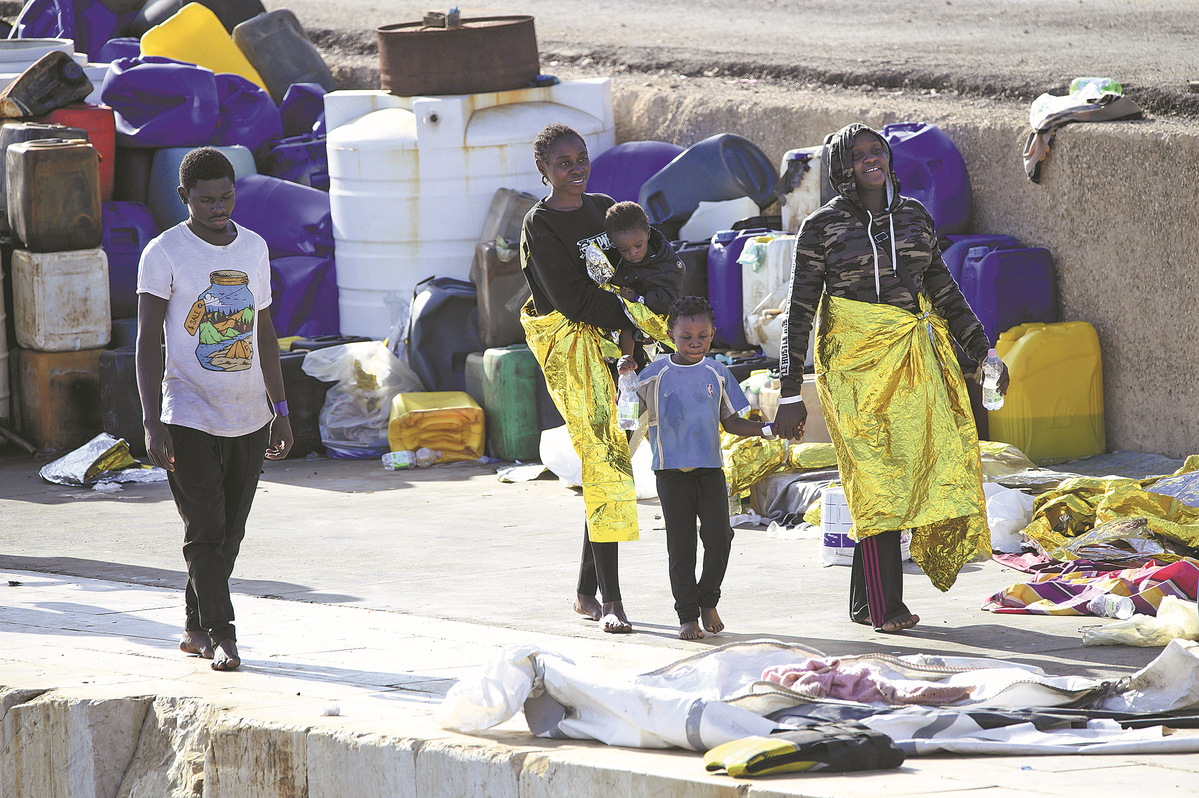
Experts attribute increasing support to economic concerns, migration issues, and predict major ramifications on group's policies
The European Union has witnessed a rapid rise of populist parties in 2023, a change that was caused largely by economic and migration issues and a change that will affect the EU's political landscape and China-EU relations, experts say.
So far, about one-third of seats in the European Parliament are occupied by parties that are viewed as populist or radical, and the trend is likely to continue in the next European elections in June.
According to research led by political scientist Matthijs Rooduijn at the University of Amsterdam, 32 percent of Europeans now vote for populist, far-right or far-left parties, compared with 20 percent in the early 2000s and 12 percent in the early 1990s.
For the first time in France, more French people say far-right leader Marine Le Pen's National Rally party, now headed by her right-hand man Jordan Bardella, is capable of participating in government than not, according to an annual survey by Le Monde and Franceinfo last month.
Just 54 percent of respondents said they disagreed with the party's ideas, the lowest since the poll first began in 1984.
A EuroTrack poll conducted by OpinionWay in November showed the National Rally would win 28 percent of the vote if the 2024 European elections were held a few days later, ahead of the 19 percent for President Emmanuel Macron's Renaissance party.
National Rally is now the largest opposition party in the National Assembly, the lower house of the French parliament. The party got 89 seats in the 577-member parliament in the 2022 election, up from a previous total of only eight.

On Dec 20, Le Pen claimed an "ideological victory" after Macron's government reached a compromise over an immigration bill, a bill that divided Macron's centrist coalition but echoed Le Pen's tougher immigration policies, such as excluding foreigners from state benefits and council housing.
In Germany, the Alternative for Germany, or AfD, regarded as a far-right party in Europe, won its first mayoral election in December in Pirna, Saxony, a victory that party co-chair Alice Weidel described as "historic".
The victory has also been seen across Germany as a sign for key state and local elections in this coming year.
In June, AfD leapfrogged to surpass Chancellor Olaf Scholz's Social Democrats, or SPD, to become the second-largest party in Germany, behind former chancellor Angela Merkel's Christian Democratic Union.
A Forsa poll on Dec 19 showed that AfD received a record high of 23 percent of support, behind the 31 percent for CDU but way ahead of the 14 percent for SPD, 13 percent for the Greens and 5 percent for the Free Democrats.
After major election victories in the states of Hesse and Bavaria in October, Weidel said AfD is "no longer an eastern phenomenon, but has become a major all-German party".
"So, we have arrived," she said, referring to the party's high popularity in former East Germany's states.
In Italy, Prime Minister Giorgia Meloni worried many after she took power in October 2022 because of her Brothers of Italy party's reputation as a post-fascist party. But so far, her coalition has been widely viewed as right-wing on domestic policies, such as family, civil rights and immigration, but moderate on international relations and some EU affairs.
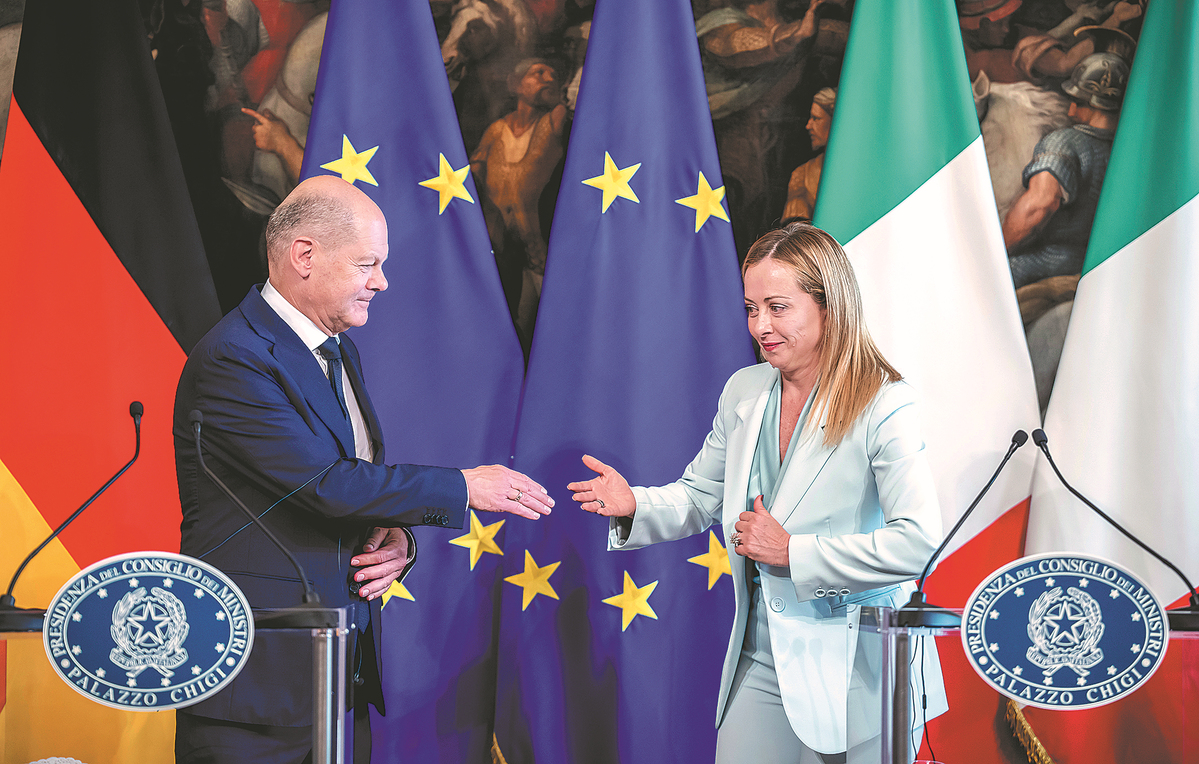
"Since becoming Italy's prime minister, Giorgia Meloni has been something of a surprise for Brussels-based skeptics," Anthony Constantini, who studied populism at the University of Vienna, wrote in an opinion piece for the Politico website.
"As leader of the post-fascist Brothers of Italy, many had expected her to be a firebrand a la Hungary's Viktor Orban. But she has instead sought a different goal: to become the first populist-right leader to forge a genuine Pan-European alliance.
"And if she's successful, it could change the game in Brussels forever."
Besides the EU's three biggest economies, populist leaders have also claimed election victories and gained popularity in the past year in Austria, the Netherlands, Slovakia, Sweden and several other EU states.
Yan Shaohua, an associate professor in the Institute of International Studies at Fudan University in Shanghai, said the rise of the far right, including in core EU countries such as France, Germany and Italy, is largely associated with the persisting migration crisis that has worsened over the past years because of heightened geopolitical tensions in the EU's neighborhood, particularly in Ukraine and the Middle East.
"With an election year coming in 2024, the rise of far-right populism is expected to further transform the EU's political landscape that has been increasingly fragmented and polarized over the years," he said.
Yan said he believes the far rights' anti-immigration stance and nationalist rhetoric will pose serious challenges to the EU's established policies in areas of migration, internal reform and support for Ukraine.
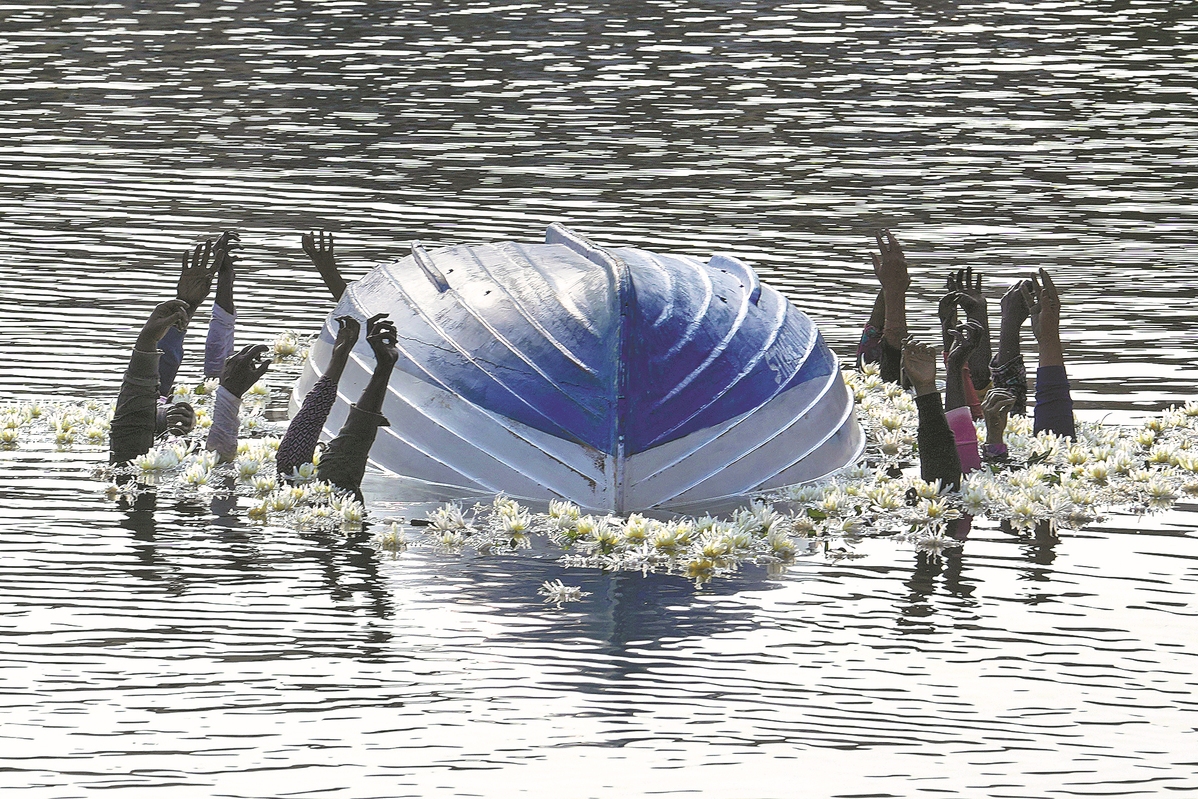
'More pragmatic' approach
"For China-EU relations, the picture will be a mixed one. While the rise of right-wing populism has led some EU member states to take a more pragmatic approach toward China, such as Hungary's Eastern Opening policy, it could also push some countries to take a tougher approach in different sectors," he said.
He Zhigao, a researcher at the Institute of European Studies at the Chinese Academy of Social Sciences, said he believes the rise of populism in Europe is caused by the growing division among member states during globalization and EU integration as well as the resistance to elite politics.
"They support political and economic protectionism … and on the other hand, the frequent transfer of power in some countries means a lack of consistent policy on China, making the relationship more complex and challenging," he said.
But he said he believes it still will not change the fundamental landscape of "mutually beneficial win-win cooperation" between China and the EU.
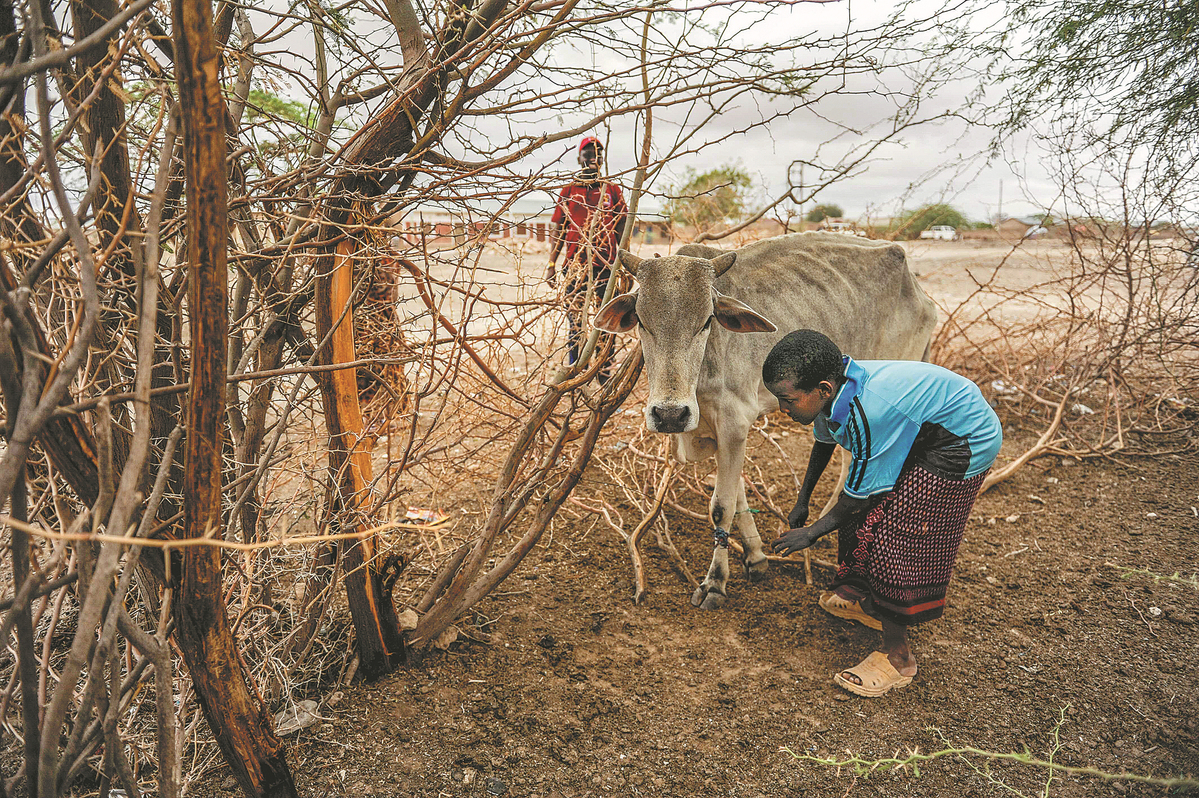
During my formative years in Kisumu town, western Kenya, the shores of Lake Victoria significantly shaped my early experiences and memories.
As the world's largest tropical and second-largest freshwater lake, it offered plentiful fish for consumption and served as a source of income for local fishers selling their catch in the markets.
As primary school students, we would visit the lake's beach after school, basking in the cooling water for a refreshing swim. On weekends, armed with our improvised hooks, lines, rods and worms, we would troop to the lake's shores for lighthearted fishing escapades.
However, climate change has affected the mother lake for many Africans.
In the early 1990s, the majestic lake fell victim to an invasion by the intrusive water hyacinth plant, which cast a suffocating green cloak across its surface. Following the complete occupation by this invasive aquatic weed, the previously blue lake turned to a field of green. The leaves of the floating plant extended like an immense green carpet, blown gently into the horizon by the wind.
The absence of natural predators for the weed, coupled with the perfect temperature conditions of the lake, facilitated rapid spread of the plant. It thrived by gorging on open space, cutting off fishing routes and creating a conducive environment for disease-carrying mosquitoes.
At the dawn of the hyacinth problem in Kenya, the government was at a loss on how to tackle the pervasive floating weed. The spread of this invasive species, challenging to manage and reverse, posed a significant threat to biodiversity, economic development and human well-being.
The government's early efforts to control the weeds included chemical methods, namely the use of herbicides. Physical methods were also deployed, including the manual removal of the weeds and the employment of machines such as weed harvesters.
Despite showing initial success, these methods proved to be unsustainable because the use of chemicals might degrade water quality and put aquatic life at risk, and the deployment of crusher and destruction boats turned out to be expensive.
While working on an environmental protection assignment for China Daily, I came to admire the ingenious attitude of Africa's youth in developing sustainable solutions for environmental challenges.
During the assignment, I interacted with Rahmina Paulette, a young Kenyan who had started a venture of turning water hyacinth into fiber for making baskets, bags and printing paper.
To widen my sources, the assignment led me to other inventive biological methods devised by Kenyan youth to fight the pervasive weed. One such venture was set up by Biogas International, a Kenyan energy technology company. It has invented a machine that converts waste, such as water hyacinth, into biogas, a cleaner alternative for cooking fuel.
At Maasai Mara University in Kenya, students have done research on water hyacinth's ability to remove algae, fecal coliform bacteria, trace amounts of toxic metals, organic substances and other dissolved impurities from wastewater. The research has materialized into a system that can recycle wastewater from bathrooms and kitchens by collecting effluents and purifying them using water hyacinth.
It is said that when life gives you lemons, make lemonade. Climate change might be a real threat to human existence, but young people in Africa are demonstrating that some of these environmental and climate challenges can be tackled by simply tapping into the innovative and tech-savvy nature of the youth of today.

Many people weighed down by more expensive rents and mortgages while wages have not kept up
When the United Kingdom's prime minister declared victory in halving the nation's inflation rate in November, Rahmath Ali had been doing gig work at weekends for six months to make up the 500 pounds rise in his monthly mortgage.
With a weekday job in Slough, to the west of London, Ali earns an annual income that is slightly above the country's average of 33,000 pounds ($41,800). But with a mortgage to pay and a family to feed, he is among millions of UK residents who have been experiencing the pain brought by high inflation, which started at the beginning of 2022.
Now the inflation rate is back down again, the cost-of-living crisis is still far from over. A stagnant economy, tightening public spending, and growing inequality have fueled the crisis, leaving millions of low-income households worse off now and likely to remain so in the years to come.
Ali's wife left work five years ago to be a full-time mother when she gave birth to a second child because hiring someone to take care of their children was "too expensive in this country".
"The salary is not enough. It just covers basic things. Forget about anything high standard," said Ali. "Even Slough is become very expensive now… After paying tax, monthly mortgage, bills and food, nothing left, to be honest."
The UK's consumer price index, which measures the change of the price of goods and services paid by urban residents, has hiked from below 5 percent in late 2021 up to a 40-year record high of 11.1 percent in October 2022 and lingered around 10 percent for months before edging back down.
The rate was finally down to 3.9 percent in November, and the latest data from the Office for National Statistics, or ONS, showed food prices were 30 percent higher than they were two years ago.
"The political narrative right now is that the cost-of-living crisis is old news," said Mike Brewer, chief economist at the Resolution Foundation, an independent think-tank that focuses on research into living standards in the UK.
"The chancellor and the prime minister are both celebrating the fact that inflation is half the level it was a year ago, and the government clearly wants to move on and talk about something else," he said during a briefing on Dec 14. "The question we're posing today is how much does that make sense, what are our families really experiencing right now? Energy may be cheaper than it was a year ago, but food and housing certainly are not."

Food prices rise
A survey from the ONS in November said, despite easing inflation, nearly four in 10 adults across the country were spending more than usual to get what they normally buy when food shopping, while more than four in 10 adults said they were buying less food when food shopping as a result.
A detailed analysis of the office's survey covering the period July 12 to Oct 1 showed that one in 20 adults had run out of food in the preceding two weeks and had been unable to afford to buy more. This rose to 8 percent among parents of dependent children, 13 percent among renters, and 21 percent among renters with dependent children.
Another poll conducted in early 2023 by YouGov, a global public opinion and data company based in the UK, painted a similar picture with 14 percent of all Britons saying they had skipped meals in the preceding 12 months because they could not afford to eat. And 24 percent of British parents with children said they had missed meals within the previous year so they could feed their children.
In December 2022, the Big Issue magazine, one of the UK's social businesses that works to help homeless people, asked two chefs to cook up a 20-pound Christmas dinner from supermarkets' cheapest ingredients. The chefs served a sausage stuffing traybake with lots of roasted carrots, parsnips, potatoes, and cabbage.
Last month, the magazine revisited the topic, and found the same recipe, using exactly the same ingredients from the same shops, now cost more than 24 pounds.
"Christmas can be a really difficult time. The financial stress of having to choose between heating and eating and making sure the kids have the presents they want can be overwhelming," chef Tom Kerridge told the magazine. "It's easy to see how the festive period can turn into quite a dark time for people."
The reasons why food prices have been rising faster than earnings are complex and include soaring energy prices and supply-chain disruption brought by the Russia-Ukraine conflict, as well as rising labor costs partly attributed to the UK's exit from the European Union, as well as the impact of climate change on harvests.
John Kinston, owner of Kinston EH & Sons, a dairy farm with 800 cows in England's Staffordshire county, told China Daily earlier in 2023 he had to take an extra 100,000 pounds from the bank to cover the farm's operating costs because of the rising price of food for his herd.
"Milk prices did increase, but not quick enough for the rising cost," said Kinston, who added that the price of fertilizer has gone from 280 pounds per ton to 750 pounds per ton.
The high price of fuel for agricultural machinery, the skyrocketed price of fertilizers and seeds, and the higher salaries needed to attract skilled workers from the EU were all eventually being passed on to consumers.

Energy bills soar
As the winter approached in the UK, the cost of heating again caused an uptick in households' rising bills. According to the ONS, the price of natural gas in October was around 60 percent higher than it was two years previously, while the price of electricity was 40 percent higher.
Merih Gebremicael, an Uber driver who is a father of two who lives in Manchester, said his energy bill almost doubled last winter, with gas costing more than 100 pounds a month and electricity another 70 pounds.
"The bill is killing us, I cannot afford to get sick and have to work every day to ensure I can pay the bills," he said, adding that he has to switch off his heating for longer than he did in the past in order to save money.
Gebremicael was on the brink of falling into what National Energy Action, a UK charity working to ensure people have a warm home, describes as "fuel poverty", in which a household needs to spend 10 percent or more of its income on energy to maintain a satisfactory heating regime.
The average annual energy bill, under the calculation of the UK's Office of Gas and Electricity Markets, or Ofgem, stands at 1,923 pounds this winter, and National Energy Action estimates there are currently 6.3 million UK households in fuel poverty. In 2021, they estimated the number was 4.5 million.
In December, Ofgem revealed the total value of unpaid bills had hit 3 billion — the highest-ever level — due to a combination of sustained high wholesale energy prices, and wider cost-of-living pressures.
Although the commodity price for oil and natural gas has fallen from its peak in 2022, households are still having to pay around the same on their energy bills this winter as they did last year because the Energy Bills Support Scheme, which was introduced by the UK government to give every household 400 pounds of discount on their energy bills has been discontinued.
The UK government has instead announced that approximately 8 million eligible households will receive a cost-of-living payment early next year, as part of a broader support package for eligible individuals, primarily those who receive social welfare benefits. They will receive a payment of 299 pounds in February.
Despite the significant packages of support to date, National Energy Action said it believes there is still a need to increase financial support for the UK's poorest households.
In the November survey done by ONS, nearly four in 10 adults in the UK who pay energy bills said they were "very" or "somewhat" difficult to pay. The survey also revealed that 46 percent of adults were using less fuel, such as gas or electricity, in their homes because of the rising cost of living.

Rent and mortgages hiked
Facing rising prices, people do at least have the option of cutting back on how much food they eat or how warm they keep their homes, but they have little ability to cut back on housing, and both rents and mortgages have become a big burden for many people recently, especially those who have renewed their mortgage or signed a new tenancy agreement.
Arthur Chen, a graduate student in London, is one of many tenants who have faced a steep increase in rent during the past two years, despite official statistics from the ONS showing that private rental prices in the UK have only risen by 5 percent this year.
"There is a sharp contrast during and after the pandemic," said Chen, who is co-renting a two-bedroom flat near Battersea Park in London. "In 2020, the rent was 1,500 pounds a month, and now it is 2,000 pounds. And this flat has been among the cheapest ones in the area."
Chen found a job in the City of London last year and has managed to go on living in his flat, but many of his classmates who progressed to doctoral studies have had to move out of central London.
"Some of them moved to Ealing, some moved to Wanstead, some to Sutton. They then spent two hours commuting," Chen said.
In order to tame the high-flying inflation rate, the Bank of England, the UK's central bank, has hiked its benchmark interest rate from 0.1 percent at the end of 2021 to 5.25 percent, which has pushed up the mortgage rate and affected those who bought homes.
The bank said in its financial stability report published on Dec 6 that UK households and businesses will continue to face higher borrowing costs, and that close to 500,000 households were predicted to spend more than 70 percent of their post-tax income on their mortgage by the end of next year.
The interest rate will have to remain high for longer to bring inflation back down to the bank's 2 percent target, it said. Market forecasts expect the interest rate to stay at its current level until at least July, before starting to fall to 4.75 percent by the end of 2024.
According to the Resolution Foundation think tank, around 5.1 million households in the UK had already faced an increase in their mortgage rate by the fourth quarter of 2023, and for the 1.7 million households whose fixed-rate mortgage deals end this year, the average annual mortgage bill will rise by 3,000 pounds.
Morgan Wild, head of policy at Citizens Advice, a UK charity that provides one-on-one free advice to help people get over their problems, said they saw more people in 2022 than in the previous 10 years combined, and that they got steadily busier during 2023 because of people with debt problems.
"You see massive cutbacks in people's spending on groceries, massive cutbacks in transport. The one thing you don't see cutbacks on is housing, because you can eat less, you can heat your home less, but you can't consume half a house," said Wild.
"We are now helping a record number of people facing homelessness… their rents are going through the roof and they aren't necessarily getting enough points to move up the housing register and get access to social housing because our supply of social housing is incredibly squeezed."

Wages fall behind
To keep up with the rising costs people are facing, some companies have adjusted the wages of their workers. During the past two years, nominal wage growth has been accelerating, but it has been insufficient to counter the impact of inflation, with real earnings falling year-on-year between November 2021 and June 2023 and with growth only returning in September.
For employees in the public sector, such as healthcare workers and teachers, it is a more complicated and longer process before new government policies can bring upward adjustment of their incomes.
In November, the UK's Chancellor Jeremy Hunt set out the country's budget for 2024 in his autumn statement and announced a series of tax cuts, welfare programs, and public service spending policies, including that the legal minimum wage for workers older than 21 would increase to 11.44 pounds per hour from April next year.
However, the Living Wage Foundation responded that, though a rise is welcome for low-paid workers, it still falls short of the "real living wage", calculated by the charity based on a basket of goods, which stands at 12 pounds per hour in the UK and 13.15 pounds per hour for workers in London.
The gap between the minimum wage and the real living wage translates to 1,092 pounds a year for a full-time worker outside London, and 3,334 pounds for those working in London, where many things are more expensive than in the rest of the country.
In the past year, trade unions, including those representing teachers, train drivers, and nurses, have called strikes to demand pay rises. The latest, involving junior doctors in England, will see them walk out for nine days between December and January, after they failed to secure a better pay offer from the government.
To solve the interlinked crisis, the UK needs to put an end to the economic stagnation it has endured since 2007, said Martin Wolf, chief economics commentator at the Financial Times, who explored the issue in a two-part column article on the UK economy in December.
"The UK's economic dynamism has evaporated … Britain is suffering from a poisonous combination of stalled productivity and high inequality," Wolf said, adding that household incomes in the UK have fallen well behind those in peer countries as low-income households were some 27 percent poorer than in France or Germany.
But the combination of an aging workforce, geopolitical tensions, Brexit, higher interest rates, and the transition to greener energy will put more pressure on the economy and public spending, making it harder for the government to set out a plan to emerge from economic stagnation.
"Finally, strategic problems need strategic solutions. British governance does muddling through, instead. But that just will not work," he said. "The UK has become accustomed to managing stagnation: this frog is being boiled too slowly. I hope I am wrong."
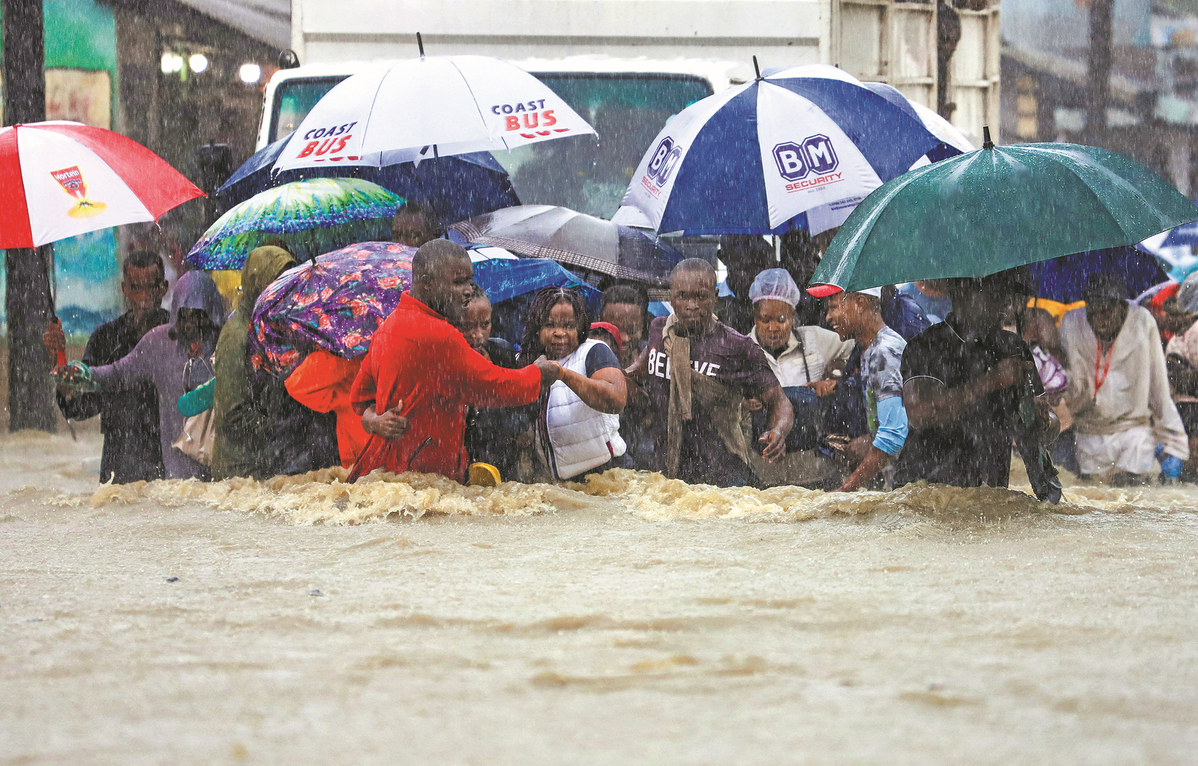
Experts want continent to focus on sustainable farming while it grapples with extreme weather events
In the year following Africa's hosting of the 27th United Nations climate summit, more commonly referred to as COP27, held in Egypt in 2022, the continent has endured a run of lethal and unprecedented extreme weather events.
In September, Libya hit global headlines when Storm Daniel made landfall, causing severe weather conditions, including strong winds and sudden heavy rainfall that affected several areas in the country. Massive floodings killed more than 4,300 people, and more than 8,500 are still missing, according to the United Nations Children's Fund.
Even though Libya's floods were among the few African climate extremes that made global headlines last year, many other deadly and life-threatening events in Africa failed to gain international news coverage.
The Horn of Africa has seen almost three years of some of the worst drought conditions in history, said the Famine Early Warning Systems Network, a global provider of early warning and analysis on acute food insecurity. Ethiopia and Somalia have experienced five failed rainy seasons since late 2020, which have displaced 1.4 million Somalis and killed 3.8 million livestock.
This period of extreme drought was followed by the El Nino-induced heavy rains and flash flooding that killed hundreds in Ethiopia, Kenya and Somalia last year, the United Nations said. The deluge swamped more than 1,000 hectares of cropland in Ethiopia and Somalia, challenging the agricultural economies in the two countries where more than 65 percent of the population relies on farming and much of the region's farmland relies on rainfall for irrigation.
Kilion Nyambuga, a research and planning expert involved in the resettlement of slum dwellers in Kenya, said Africa is responsible for only a fraction of global emissions but is suffering disproportionately from climate change.
"The fact that Africa is continuously facing the extreme effects of climate change despite the continent's low emissions is harming food security, ecosystems and economies while fueling displacement, migration and worsening the threat of conflict over dwindling resources," he said.
Emissions of carbon dioxide per person in Africa in 2021 were 1.04 metric tons, standing in stark contrast to the global average, which is more than four times as high, said a report published by the World Meteorological Organization in September.
The report, called "State of the Climate in Africa 2022", said the rate of temperature increase across Africa has accelerated in recent decades, with weather and climate-related hazards becoming more severe. Yet, financing for climate adaptation is a drop in the ocean of what is needed.
Nyambuga said the global approach, which seems fixated on mitigation, neglects Africa's pressing need for adaptation financing and loss and damage compensation. The decision by African countries to host the inaugural Africa Climate Summit in Kenya's capital Nairobi in September 2023, was timely and "a plus for the African Union", he said.
Alex Mugambi, chair of the Environmental Institute of Kenya, said the African Climate Summit was a success, highlighting the adoption of the Nairobi Declaration, a comprehensive document that outlines Africa's vision, priorities, and demands for climate action and finance.
"The declaration call was a win for Africa for calling for a new global financial deal with fit-for-purpose financing instruments and products to serve Africa's specific growth goals," Mugambi said.

Disproportionate financing
"The declaration also shed light on the disproportionate global climate change financing system by urging developed countries to honor their commitment to provide $100 billion per year in climate finance by 2020 and increase their ambition and support for adaptation, mitigation, technology transfer and capacity building in Africa."
Nyambuga said the Africa Climate Summit also drew attention to local African solutions in combating climate change, adding that previous focus on local solutions generated by native communities had been inadequate.
As global delegates gathered in the United Arab Emirates in November for the 28th Conference of the Parties to the United Nations Framework Convention on Climate Change, African experts have said the forum produced a range of outcomes that may help to scale up efforts to invest in clean energy, mitigate climate change damage and accelerate the development of carbon markets.
A key priority for the African continent heading into COP28 was to bring the loss and damage fund into operation, said Hardi Yakubu, movement coordinator of Africans Rising For Unity, Justice, Peace& Dignity, a pan-African civil society movement. This fund was agreed in principle at the previous summit as a vehicle to help low-income countries that are most exposed to climate change impacts, and was featured prominently in the Nairobi Declaration.
The financial commitments announced by several countries at COP28, with pledges totaling more than $700 million, reflect a glimmer of hope for developing countries, said Yakubu, a climate activist from Ghana.
"The first round of pledges will clearly be insufficient to support countries in Africa and around the world on the front line of the climate crisis. However, the success of this fund will depend on the speed and scale at which funds start flowing to people in need," he said.
Another area that received much attention at COP28 was Africa's contribution to the voluntary carbon market, he said. This market provides a route for Africa to financially benefit from its natural resources and assets which remove carbon from the atmosphere and provide other environmental services to the planet.
"COP28 achieved good progress toward realizing the win-win opportunities from the carbon markets. Africa is poised to benefit from a maturation of the carbon market over the next 18 months," Yakubu said.
Mugambi said all is not lost for Africa as the continent steps up efforts to make its climate needs known.
In addition to demanding climate compensation, he said African policymakers can create an enabling environment for green ventures that invest in research, innovation and education, as well as for promoting public-private partnerships and fostering collaboration across governments, businesses and local communities.
"Africa should prioritize transitioning to sustainable agriculture, which currently contributes about 17 percent to sub-Saharan Africa's GDP. Embracing organic farming, precision agriculture and agroforestry are some of the approaches that can enhance productivity while minimizing negative impacts on ecosystems," he said.
"Africa can also become a trailblazer in renewable energy solutions, with abundant solar, wind, hydro, biomass and geothermal resources that may contribute to an increase in the continent's GDP. Ocean renewable energy is another vast untapped resource for Africa."
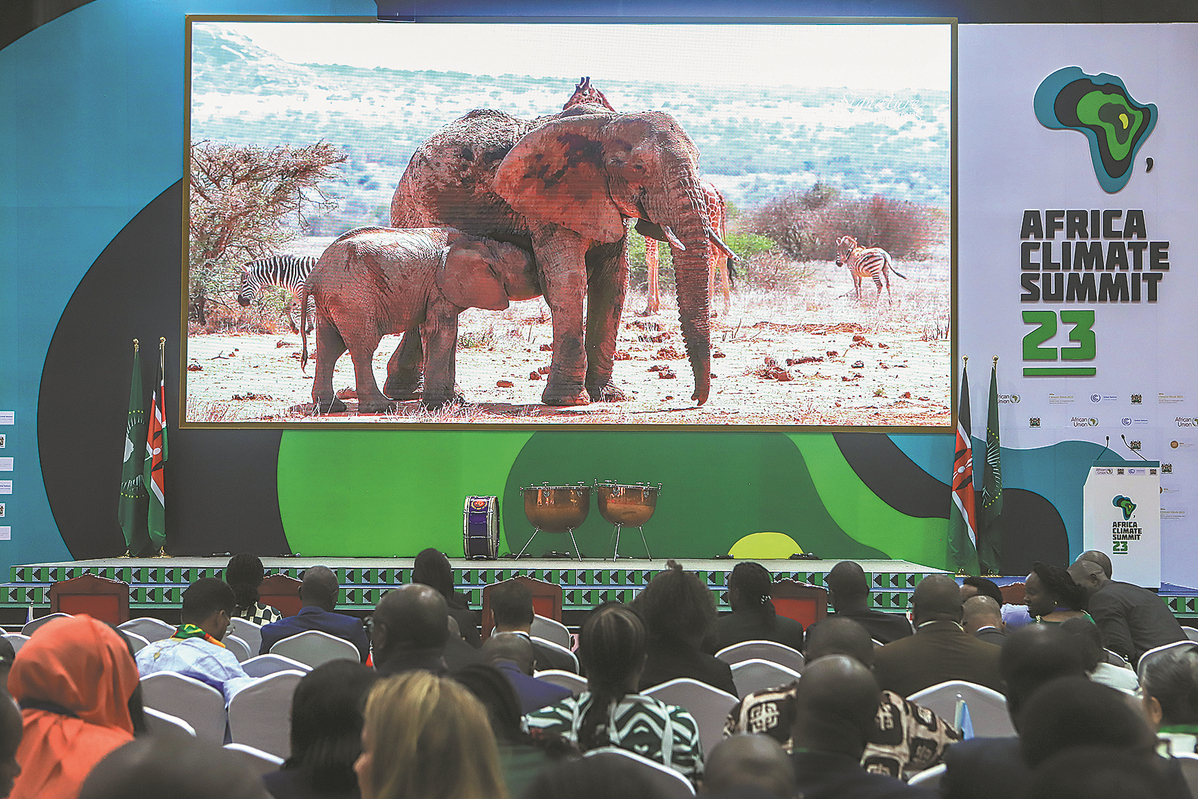
Addressing challenges
Nonetheless, other experts have argued that despite Africa being one of the major victims of global warming, its countries must not forgo addressing their specific challenges in poverty alleviation and development. In other continents, they said, such development has often been fueled by the utilization of oil and gas resources.
Exploiting Africa's newly discovered fossil fuels will lead to new jobs and business opportunities, Nyambuga said. In addition, successful exploration on the continent will attract further investment, leading to a rise in employment across many industries and accelerated economic growth for oil-rich African countries.
"The global approach should not be fixated on mitigation while ignoring Africa's pressing need for earning revenue through its resources as others did before. The demand for greater consideration of Africa's needs will do nothing if African governments are not pulling in the same direction. Africans must approach climate change with a united voice, representing all the continent's people, and making their case clearly and firmly," Nyambuga said.
Editor's Note: In 2023, there was a flurry of diplomatic activities around global hot spots. Here is a pick of major diplomatic gains and setbacks in the world.
Russia-Ukraine conflict comes to a gridlock
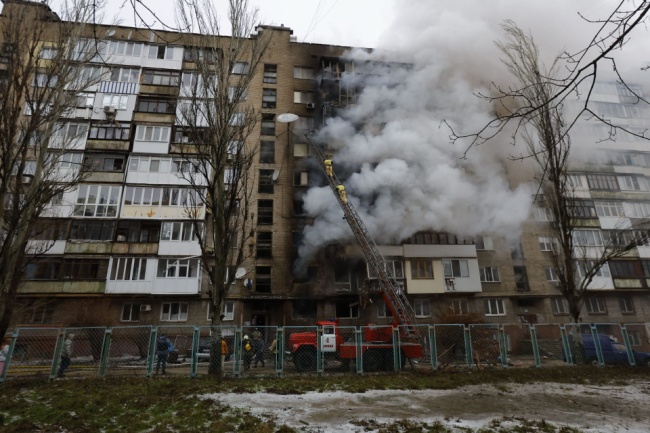
The Russia-Ukraine conflict, which began in February 2022, fell into a deadlock in 2023. Ukraine's summer counter-offensive failed to achieve a major breakthrough, and Russia announced a planned expansion of its armed forces.
Outside the battlefield, the US and EU are facing tough decisions on their aid package to Ukraine.
Since the Russia-Ukraine conflict broke out, the US has committed more than $44.2 billion in military aid to Ukraine, the Pentagon said in December. A Gallup poll released in November showed that 41 percent of Americans believed the US was doing too much to help Ukraine, a 12-percentage-point increase from 29 percent in June.
EU leaders at a December summit failed to agree on an additional 50-billion-euro ($54.63 billion) aid package to Ukraine. Prior to this, the bloc, having provided huge amounts in aid to Kyiv, has been widely criticized for its "double standards" in the Ukraine and Middle East conflicts.
NATO expansion sparks security concern
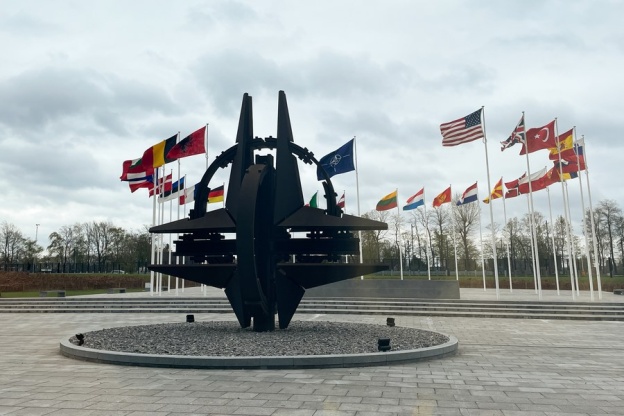
Finland officially became the 31st member of the NATO in April after winning approval from all member states. After the Russia-Ukraine conflict started in February 2022, Sweden and Finland submitted applications to join NATO in May 2022.
The NATO-Ukraine Council held its first meeting at the foreign ministers' level in November. According to the council, NATO and Ukraine are already working on a broad range of issues, including interoperability, energy security, innovation, cyber defense, and resilience.
Analysts caution that NATO's expansion and its responses to the Russia-Ukraine conflict could potentially jeopardize global security by triggering significant socioeconomic and political transformations.
Expansion of BRICS and G20

In August, BRICS, the grouping of major emerging economies of Brazil, Russia, India, China and South Africa, agreed to invite six additional countries — Argentina, Egypt, Ethiopia, Iran, Saudi Arabia, and the United Arab Emirates — to become full BRICS members on Jan 1, 2024.
The enlarged BRICS grouping represents more than 40 percent of the world's population, 25 percent of the global gross domestic product, and one-third of the planet's economic growth.
Similarly, G20 members granted permanent membership to the 55-member state group African Union in September.
The expansion of BRICS and G20 groups signifies that the Global South, comprising emerging market economies and developing countries, is striving to bring about transformative changes on the world stage, global observers say.
Israel-Hamas conflict
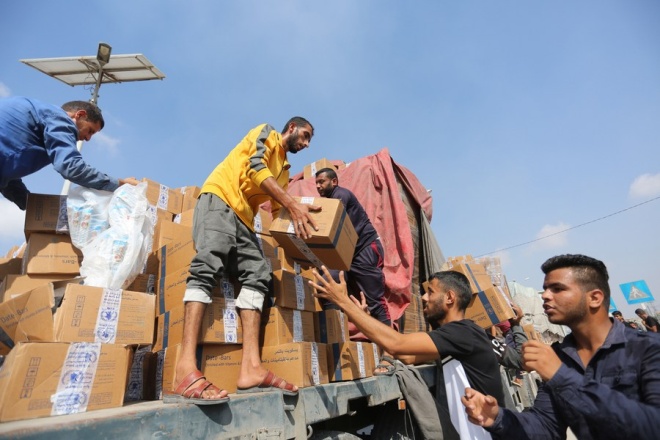
More than two months into the Israel-Hamas conflict, violence in the Middle East has no end in sight. The conflict, triggered by Hamas' surprise attack on southern Israel on Oct 7, is the deadliest in decades as it has killed more than 20,000 Palestinians and about 1,300 people in Israel.
A cease-fire between Israel and Hamas, initially lasting four days and gradually extended to a week, concluded on Dec 1. Israel subsequently restarted its attack and resumed the conflict that has resulted in extensive damage to Gaza and Hamas.
Integrated Food Security Phase Classification, a humanitarian organization backed by the UN, issued a report on Dec 21, warning that Gaza's entire 2.3 million population is at risk of famine due to the shortage of food caused by the Israeli siege.
International pressure is mounting for a new truce that could ramp up aid to the besieged Palestinian territory.
EU wrestles with migration crisis
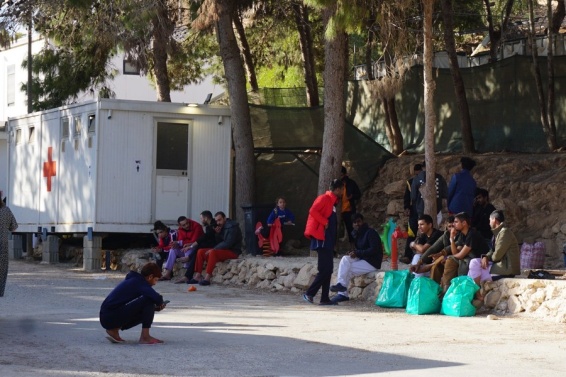
As the European Union is struggling to fix migrant plight, some of its member states have tightened their borders over the past few months. In November, France reinstated border controls and Germany has also introduced border checks.
Irregular crossings at the EU's external borders increased by 17 percent in the first 11 months of this year to over 355,300, surpassing full-year totals in any year since 2016, the European Border and Coast Guard Agency said. The bloc's 27 member states plus Norway and Switzerland are projected to receive over one million asylum applications in 2023.
The EU member states have been progressing with the long-stalled reform of a united migration policy, but given their divergent positions, the talks are lengthy and difficult.
Immigration has become the third rail of European politics, with October's informal EU summit in Granada, Spain, being an evident example, where the EU heads of state and governments failed to reach an agreement on addressing the pressing migration crisis.
Xi, Biden meet in San Francisco
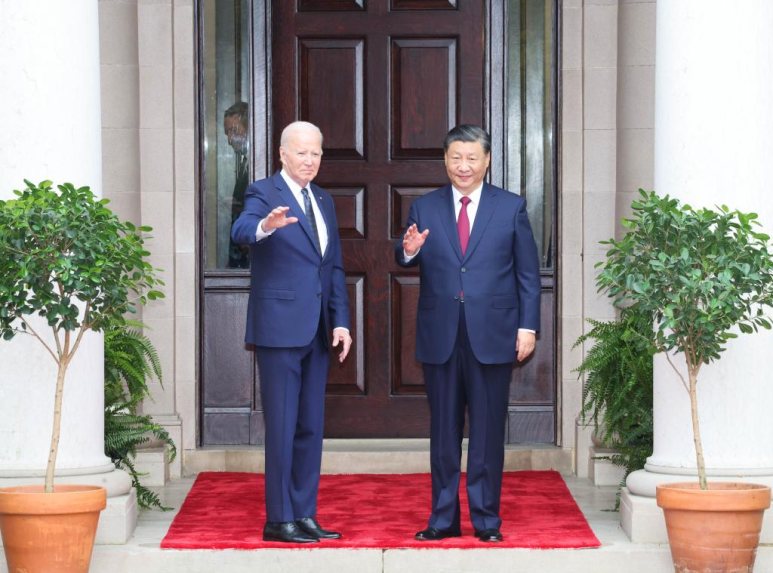
President Xi Jinping met US President Joe Biden at the Filoli Estate in San Francisco in mid-November. This was Xi's first visit to the US in the past six years.
The trip is widely believed to have added stability to China-US relations, brought new impetus to the Asia-Pacific cooperation and injected positive energy into the international and regional landscape.
Xi-Biden summit reaffirmed their commitment to bilateral ties, especially by agreeing to 20 items of cooperation, including restoration of bilateral military-to-military ties, China-US inter-governmental dialogue on artificial intelligence, and reopening China-US dialogue and cooperation for controlling the spread of drugs.
China-Japan-ROK meeting
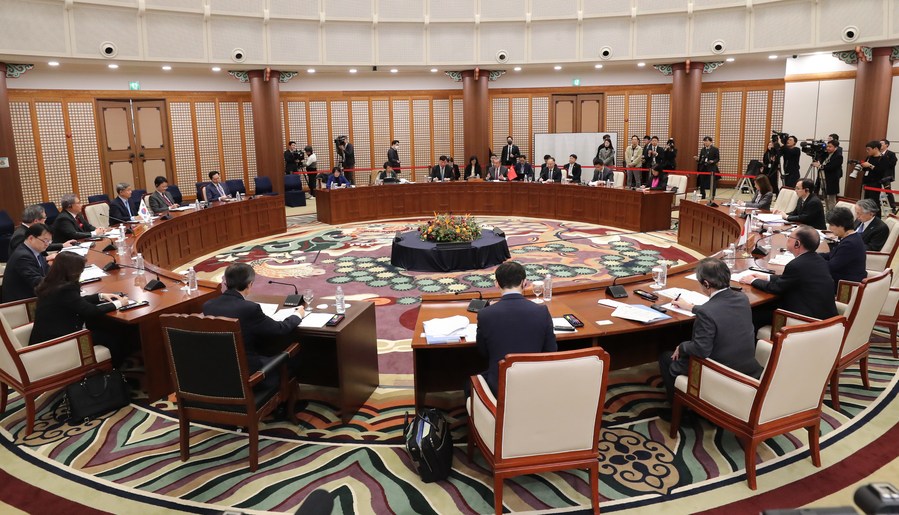
Trilateral foreign ministers' meeting between China, Japan and the Republic of Korea was held in Busan, the ROK, in November. The meeting took place more than four years after the last such meeting in 2019.
Observers and officials noted that although the trilateral governmental dialogue mechanism has witnessed a slowdown in its progress over the four years, the three nations gave a push to the enactment of a 15-member free trade agreement that they signed up for — the Regional Comprehensive Economic Partnership.
At the meeting, the three sides agreed to create conditions for the China-Japan-ROK leaders' meeting and step up relevant preparations.
COP28 adopts first-ever deal on fossil fuels

The 28th session of the Conference of the Parties to the UN Framework Convention on Climate Change, or COP28, ended in December with the final text of the climate deal calling for "transitioning away from fossil fuels".
The agreement was unanimously approved by 198 nations. It marked the first time that firm action on fossil fuels has been agreed at a COP summit.
When the negotiations got stuck, China and the United States worked together, provided "some joint proposals to unlock the deadlock, and facilitated the success of the COP", said Xie Zhenhua, China's special envoy for climate change.
China and the US have released an agreement which addressed the national actions of the two countries, such as accelerating renewables and deployment to substitute for fossil fuels, said John Kerry, the US special presidential envoy for climate.
Saudi Arabia and Iran restore relations
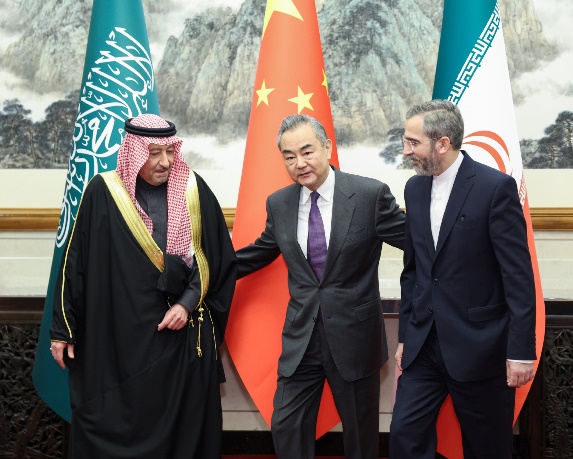
In March, Saudi Arabia and Iran reached a deal, including the agreement to resume diplomatic relations, under the mediation of China. In December, the first vice-ministerial level meeting of the China-Saudi Arabia-Iran trilateral joint committee was held in Beijing.
All of these efforts were made to encourage regional countries to realize development through solidarity and resolve disputes and differences through dialogue and consultation, said Foreign Ministry spokesman Wang Wenbin, adding that China would like to work relentlessly to that end.
After the reconciliation between Saudi Arabia and Iran, a thaw in relations across the region, which had been prepared for over three years, suddenly accelerated. In April, Tunisia and Syria agreed to resume diplomatic ties, and Bahrain and Qatar agreed to resume ties the same month.
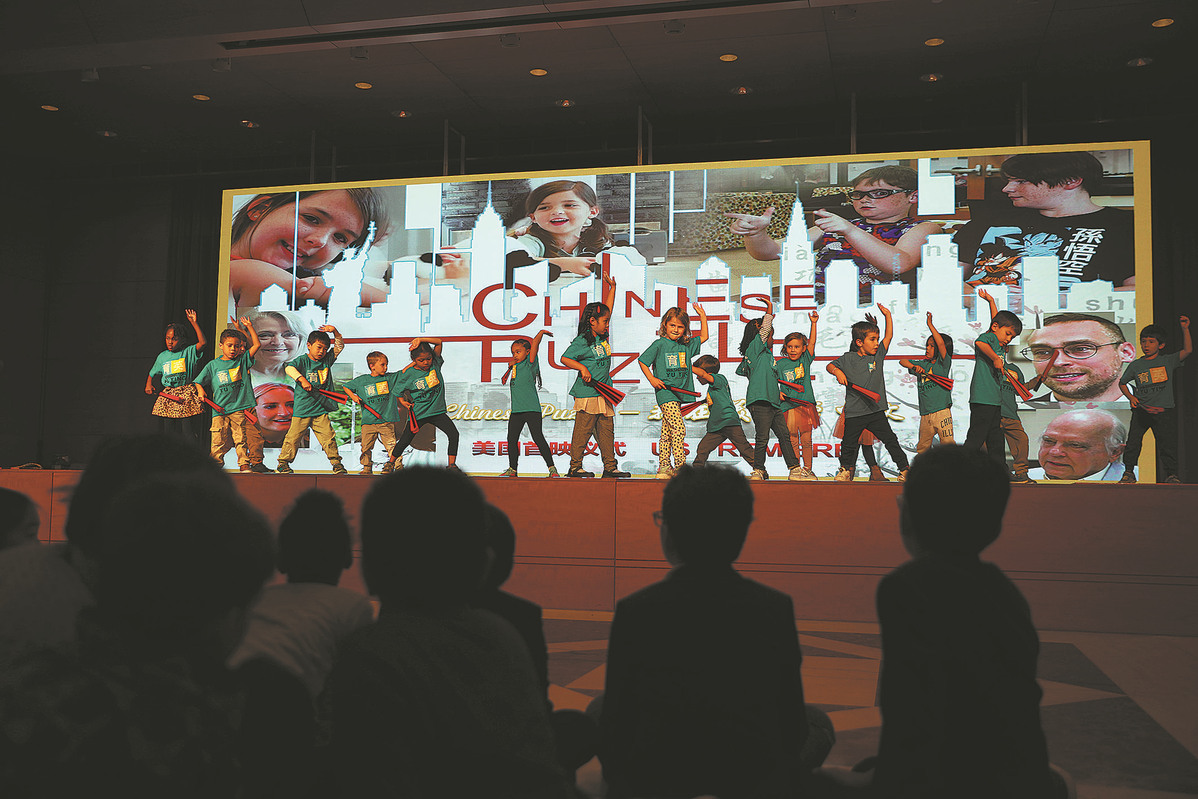
As the clock ticks toward 2024, I am wondering if US Ambassador to China Nicholas Burns would make speaking fluent Mandarin his New Year's resolution.
He literally said so half a month ago.
At the Brookings Institution in Washington on Dec 15, I asked Burns after a talk on China-US relations on his progress with his new language skill.
Back in May, the top Washington envoy in Beijing told a webinar that he had "only one personal goal", and that is to learn Mandarin, and that he had discussed the plan with his wife Libby.
Off line in Washington, Burns said: "Libby and I speak French. We learned Arabic, we learned a little bit of Greek. Mandarin is really difficult!"
He said the difficulty lies in the tones, but it is a beautiful language and they are both learning it.
"I tried to begin and end most of my talks when people come to us in Mandarin. I have broken Mandarin. I'm a struggling student ... I'll try to do better this next year," he said.
He then started speaking Chinese, nuggets of everyday conversation that flowed quite smoothly.
Turns out, Burns has been actually practicing what he preaches.
At the Brookings event, Burns said: "We need young Americans to learn Mandarin. We need young Americans to have an experience of China."
Proposing or even prodding others to study is almost an instinct for a teacher. But for Burns, a former college professor, the logic for learning one of the world's most spoken languages is also for national interest considerations.
Engaging the younger generation of the two countries is pivotal, he said, because if Washington wants to compete peacefully, people of the two countries have to understand each other.
The young people will be one day running the society, he said, adding if future US leadership is cut off from China, that has not had experience there, that does not speak Mandarin, then that is not in the national interest.
"We need to bring in more American students to China. It's a real passion of ours and of mine personally," Burns told Julia Chang Bloch, executive chair of the nonprofit US-China Education Trust.
Burns agrees with what he called Chinese President Xi Jinping's "big vision" that he put out during the San Francisco summit meeting with US President Joe Biden on Nov 15.
At the meeting, Xi announced that China is ready to invite 50,000 young people from the United States to China on study and exchange programs in the next five years.
"He said there should be 50,000 American students in China. I think he's right," Burns said.
"We've never had 50,000 American students in the history going back to 1784, which was when we began our relationship with the Qing Dynasty (1644-1911). It's a big vision. Let's work toward it. I think we agree with this, that we've got to bring the people together."
In 2021-22, the number of US students who studied abroad for academic credit totaled 188,753, nearly three-fourths of whom chose Europe as the destination, and only 4.7 percent, or 8,892 students, went to Asia, according to the Open Doors 2023 Report on International Educational Exchange published in November.
During that period, there were 211 US students pursuing academic credit in the Chinese mainland, the lowest number in a decade.
Burns said there were 350 US students in all of China last year. That number has now doubled, but it is definitely not enough.

China-US relations take positive turn amid heightened tensions in 2023
The year 2023 was not lacking in controversies and distrust between China and the US, but however eventful, it ended up with a highlight of the bilateral relationship — the Nov 15 summit between the two heads of state in California.
That the meeting even happened was an achievement, given that the year began with tensions running high following the widely reported "balloon incident" in the United States in February, in which the US military shot down a Chinese civilian airship that had drifted into US airspace.
Months later, on June 29, the Pentagon said the balloon did not collect intelligence while flying over the country.
A month before the California summit, the administration of US President Joe Biden escalated its chip war by imposing new restrictions on exports of advanced computing semiconductors.
In the same month, Senate Majority Leader Chuck Schumer led a bipartisan Senate delegation to China, the first visit to the country by US lawmakers since 2019.
Before Schumer's visit, four top officials from Biden's administration, including Secretary of State Antony Blinken and Treasury Secretary Janet Yellen, had traveled to China since June.
In September, Chinese Vice-President Han Zheng visited the US to attend the United Nations General Assembly and had bilateral discussions with the US side, followed by Foreign Minister Wang Yi's trip to the US, the first time a top Chinese diplomat visited Washington in seven years.
As a result, the two sides launched a series of dialogue mechanisms, including the rolling out of the Economic and Financial Working Groups, and held consultations on Asia-Pacific affairs, maritime affairs, arms control and nonproliferation, and foreign policies.

Now, following the presidential summit, the two countries seem to be edging toward a point at which they must decide whether and how to work and prevent flashpoints that could sidetrack the momentum toward stabilizing China-US relations, and move forward to realizing the San Francisco vision from a new starting point.
Expectations are running high among China watchers in both countries for the stability in relations to be sustained.
Wang Jisi, head of the Institute of International and Strategic Studies at Peking University, said the summit could set the tone for stable relations in the near future while arrangements are being made for next year's official bilateral interactions.
Jan Berris, vice-president of the National Committee on United States-China Relations in New York, said she hoped the meeting between the two presidents would once again provide an opportunity for the US and China to work together, to forge a "strong, a stable and a mutually respectful" relationship.
Berris, who received the Chinese table tennis team in a reciprocal visit to the US in 1972, said for the past few years, there is a perception that the engagement benefited only China.
"I think it's absolutely, 100 percent wrong, and I think both Americans and Chinese have benefited equally from our relationship," she said at an event in Washington earlier this month to mark the 52nd anniversary of Ping-Pong Diplomacy between China and the US.
In recent weeks, top envoys in each other's capital have hailed the summit between Chinese President Xi Jinping and Biden as either the "best" of the seven meetings the two leaders have had since Biden became president, or a "milestone" in the history of the bilateral relationship.
They also vowed to follow through its important consensus.
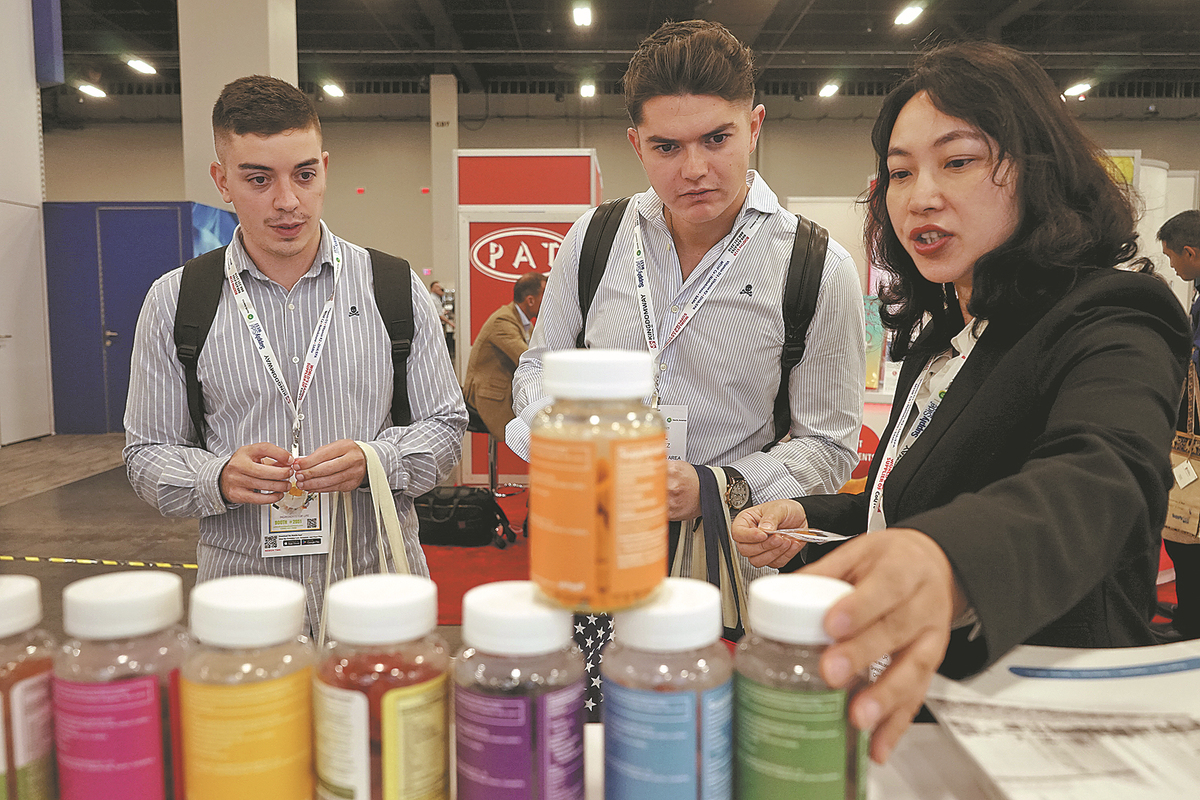
Pressing priority
Xie Feng, Beijing's top envoy in Washington, said the "pressing" priority is to follow up on the summit, where the presidents discussed the right way for China and the US to get along in the new era and where they fostered a future-oriented vision.
"China always honors its words with actions," the envoy said in Washington on Dec 13. "It is important to prevent any flip-flopping and avoid making one step forward but then taking half or even two steps backward, lest it should cause new obstacles to bilateral relations."
Asked whether there was any concern about how the common agreements of the summit are implemented and to what degree, Nicholas Burns, the US ambassador to China, said he is "hopeful" they would be carried out.
"We fully intend to implement the agreements made by President Biden and President Xi," Burns told China Daily on Dec 15, a month after the summit.
"We're doing that on fentanyl, on military-to-military communications. We will do it on AI. We'll do it on people-to-people, so we fully intend to do that," he said.
Burns said he had "a good conversation" with Xie, whom he had met more than 20 times before the former vice-minister of foreign affairs headed to Washington to assume the ambassadorial post in late May.
"So we're hopeful that both sides will implement the agreements that our presidents came to; we have to trust but verify, but we're hopeful," Burns said in Washington after giving an update on US-China relations at the Brookings Institution.
At the Brookings discussion, Burns called China a "systemic rival" and said that the relationship is complicated and complex and does not lend itself to simplistic analysis because "we're competing with China".
"But we're also engaging China. And we have to engage China," he said.
Stephen S. Roach, former Morgan Stanley Asia chairman, told China Daily, "'Systemic rivals' is a conflict-prone label — not nearly as constructive as 'cooperative rivals'."
In a recent article titled "America should aim for competitive coexistence with China", Joseph Nye, a professor emeritus at Harvard University, argues that for better or worse, the US is locked in a "cooperative rivalry" with China.
Klaus Larres, professor of international affairs at the University of North Carolina at Chapel Hill, said he believed Washington and Beijing arrived at the agreements at the Filoli estate outside San Francisco in a "serious, well-meaning and honest" way and have intentions to implement them fully.
"There should be no long delays before the agreements get implemented in practice. Any delays would give rise to mutual suspicions, which should be avoided," Larres, also a fellow at the Washington-based think tank Wilson Center, told China Daily.
Larres said there was, and still is, a lot of tension, but both sides have recognized that it is ill-advised and potentially dangerous and have thus embarked on a thawing.
The trend in continuing to stabilize relations could be maintained by much better communication at all levels, senior and junior, and through much greater political transparency, more travel diplomacy and constructive dialogues, Larres said.
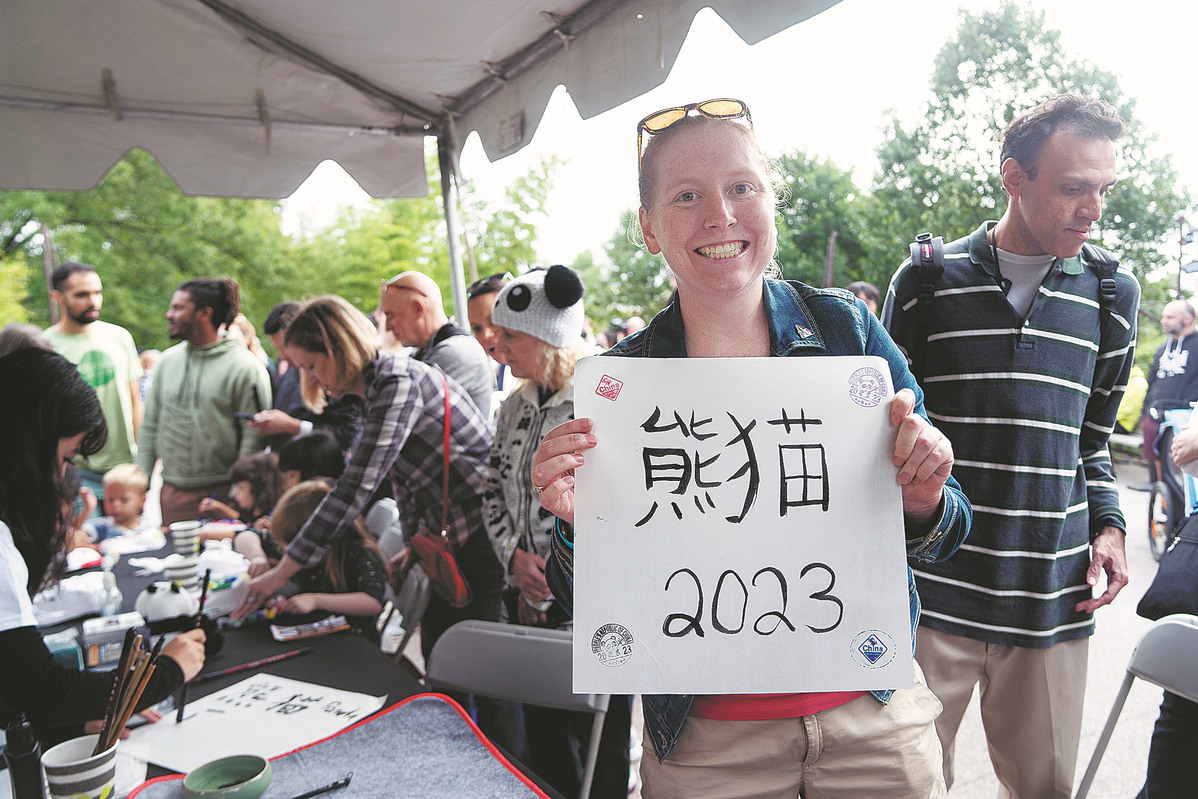
Taiwan question in focus
Looking to next year, analysts said the relations face mounting uncertainties usually in a general election year, which typically features China-bashing rhetoric among the presidential candidates, and it is also a year for the Taiwan regional leadership election.
At the California meeting, Biden reaffirmed the five commitments he made in Bali, Indonesia, a year earlier, which include that the US does not seek a new Cold War, does not support "Taiwan independence", and has no intention to have a conflict with China.
"The US is not seeking the independence of Taiwan, nor are the Europeans," Larres said in an email.
"As far as I know, they all wish to uphold the status quo," he said. "The US and the EU do not favor Taiwan independence and would not support this."
Chas W. Freeman, former US assistant secretary of defense for international security affairs, said the Biden administration's affirmation that the US is not supporting "Taiwan independence" is not rhetoric.
It is intended to caution the candidates in the island elections next month "against assuming that they would have US support for a move toward 'independence'," said Freeman, now a senior fellow at the Watson Institute for International and Public Affairs.
"It is a reaffirmation of longstanding US policy that entails domestic political costs in the context of our 2024 elections, in which ill-considered support for Taiwan and fearmongering about China are almost certain to play a role," Freeman added.

Freeman also said 2023 saw a "moderation" in the tone of the relationship that constitutes a measure of detente, in which both sides clearly hope to stabilize things and to reduce the danger of accidental conflict.
"I remain confident that common interests will, in time, draw the United States and China together, but this will take time," he said.
For Gary Clyde Hufbauer, a senior fellow and trade expert at the Peterson Institute for International Economics in Washington, prospects in the new year for further agreements on individual trade and investment issues have improved, as both heads of state want better relations.
"The problem is that US congressional hawks are pushing a long list of measures that would badly damage relations if enacted. It remains to be seen how big an election issue this agenda will become," Hufbauer said.
Right now, inflation, immigration, the Palestine-Israel conflict and the Russia-Ukraine conflict are more contentious issues for the US presidential election in November 2024, he said.
Overall, the China-US relationship is not as good as he had hoped a year ago, but it is better than expected, he said.
"It's regrettable that Biden did not eliminate most of the Trump tariffs on imports from China, but the year could have been worse. While US semiconductor exports were broadly restricted, and while more Chinese firms were added to the 'do-not-trade' entity list, Biden did not completely cave in to the demands of congressional China hawks," he said.
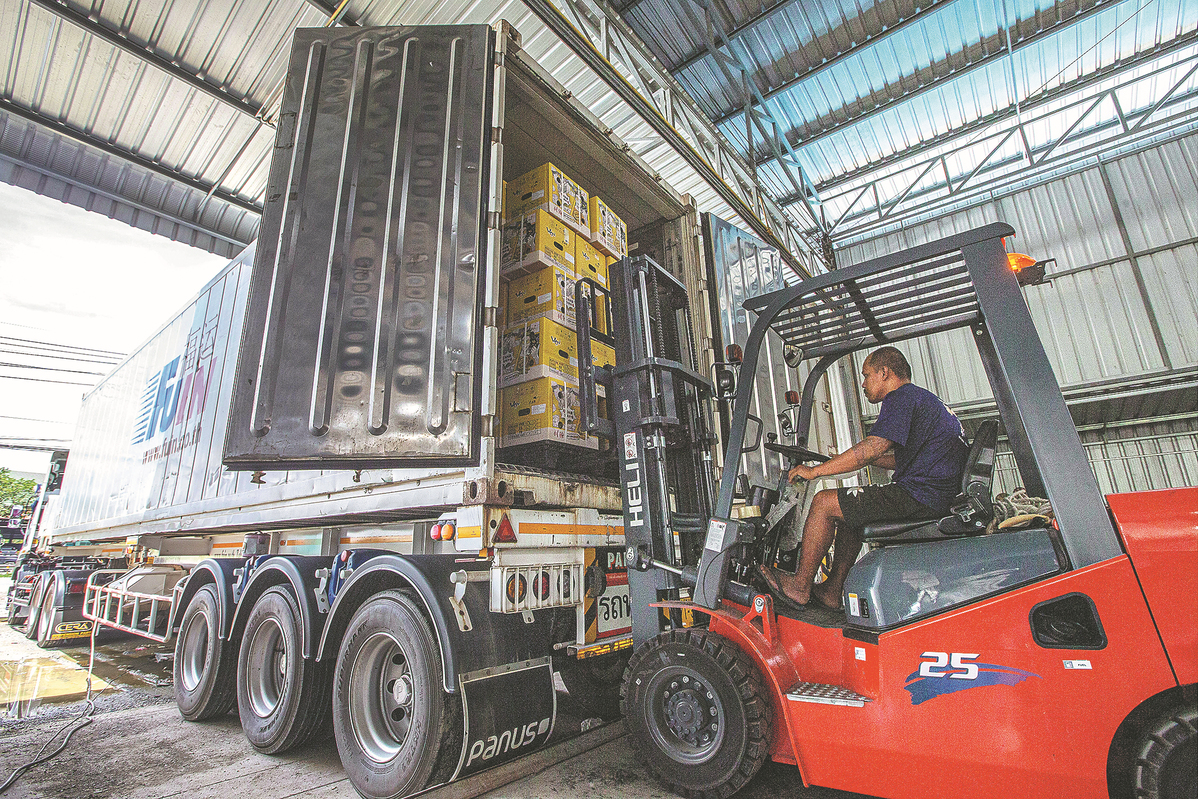
As the world emerges from the pandemic, the Regional Comprehensive Economic Partnership is poised to further facilitate trade flows and inject much-needed vitality into the global economy, which has been disrupted by uncertainties during past years, experts say.
The RCEP is an important institutional arrangement for regional economic integration in the Asia-Pacific region, offering a new paradigm for broader cooperation, they say.
The partnership was signed in November 2020 by 10 member countries of the Association of Southeast Asian Nations and Australia, China, Japan, New Zealand and South Korea.
Since the agreement came into effect for 10 of these countries on Jan 1, 2022, it has catalyzed intraregional trade and spurred economic development, observers say.
"The RCEP forges tighter economic bonds between the economies and integrates ASEAN 10+5 free trade agreement arrangements," said Li Siqi, an associate professor at the China Institute for WTO Studies at the University of International Business and Economics in Beijing.
The RCEP covers 2.3 billion people, $25.8 trillion of global GDP, $12.7 trillion of global trade in goods and services and 31 percent of global foreign direct investment inflows, according to the World Bank.
"Amid economic uncertainties and persistent downward pressure, the RCEP stands as a beacon of stability, offering member countries relatively predictable and secure trade expectations," said Zhang Miao, an associate professor of the School of International Relations/Research School for Southeast Asian Studies at Xiamen University.
As certain countries, amid global geopolitical risks, are initiating trade wars and pursuing decoupling, "the RCEP fosters mutual trust and serves as a stabilizer in navigating international uncertainties", Li said.
Buoyed by its commitment to further opening-up, China has emerged as a driving force in the global economic recovery by spearheading trade liberalization, experts say.
In 2022, China's imports and exports to the other 14 RCEP members reached 12.95 trillion yuan ($1.76 trillion), up 7.5 percent year-on-year, accounting for 30.8 percent of its total imports and exports, China's General Administration of Customs said. The figure reached 6.1 trillion yuan in the first half of this year, up 1.5 percent year-on-year.
"China's substantial economic scale serves as a vital source of reassurance," Zhang said. "It will have a positive effect on the global value chains and supply chains.
"Given the deeply intertwined interests among the countries, it can be said that the members' destinies are closely linked and stand to gain and lose together. This is what we can call 'economies of a shared future'."
'Inclusive' pact
Li hails the RCEP as "inclusive "because of members' different levels of socioeconomic development and because the pact involves not only developed economies such as Singapore and Australia, but also less-developed countries such as Laos and Cambodia.
Zhang said the agreement is like "a double-edged sword" for the less-developed countries because it presents both opportunities and challenges.
On one hand, these countries, by taking part in the pact, take on the "fast trajectory" of free trade; on the other hand, it elevates governance standards within them, she said.
The RCEP incorporates innovative policies applicable across diverse economies, she said. "The principle of cumulative rules of origin stands out as the most important institutional innovation of the RCEP as it is the embodiment of the multilateralism that China has long championed."
By setting a time frame for reducing tariffs, the RCEP focuses on reducing tariff barriers among member countries and on promoting the circulation of goods and services within the region, Li said. "The enhanced regional market cooperation not only alleviates disruptions in the global supply chains, but also mitigates risks from so-called decoupling."
Zhang said such an arrangement provides "a cushion period" for some of the participating countries.
"It enables the less-developed countries to safeguard their industries, and at the same time to reap benefits from the pact," Zhang said.
Penn Sovicheat, secretary of state of Cambodia's Commerce Ministry, said the RCEP has been a key driving force for Cambodia's export growth and has become a magnet for attracting more foreign direct investment inflows into the country.
Cambodia exported $7.21 billion worth of products to RCEP member countries in the first 11 months of 2023, up 27 percent from the corresponding period last year, said a ministry report published this month.
The Philippines was the last country to ratify the deal in February, which became fully effective for all 15 signatory countries on June 2.
Allan Gepty, the nation's lead negotiator in RCEP talks, hailed the entry as "a milestone for the Philippines".
According to the Asian Development Bank, the RCEP could increase the Philippines' exports by 3.7 percent by 2030, an addition of $7 billion.
"The RCEP introduces new ideas and solutions for global economic governance, that is, to jointly build a universally beneficial and inclusive economic governance system and promote economic cooperation," Li said. "It is believed that the RCEP will inject fresh momentum to the Asia-Pacific economic development."
Zhang said: "The RCEP reflects the commitment of a responsible major country toward further opening-up and providing a necessary international public good. The RCEP will deliver benefits for member countries and contribute to post-pandemic global economic recovery."
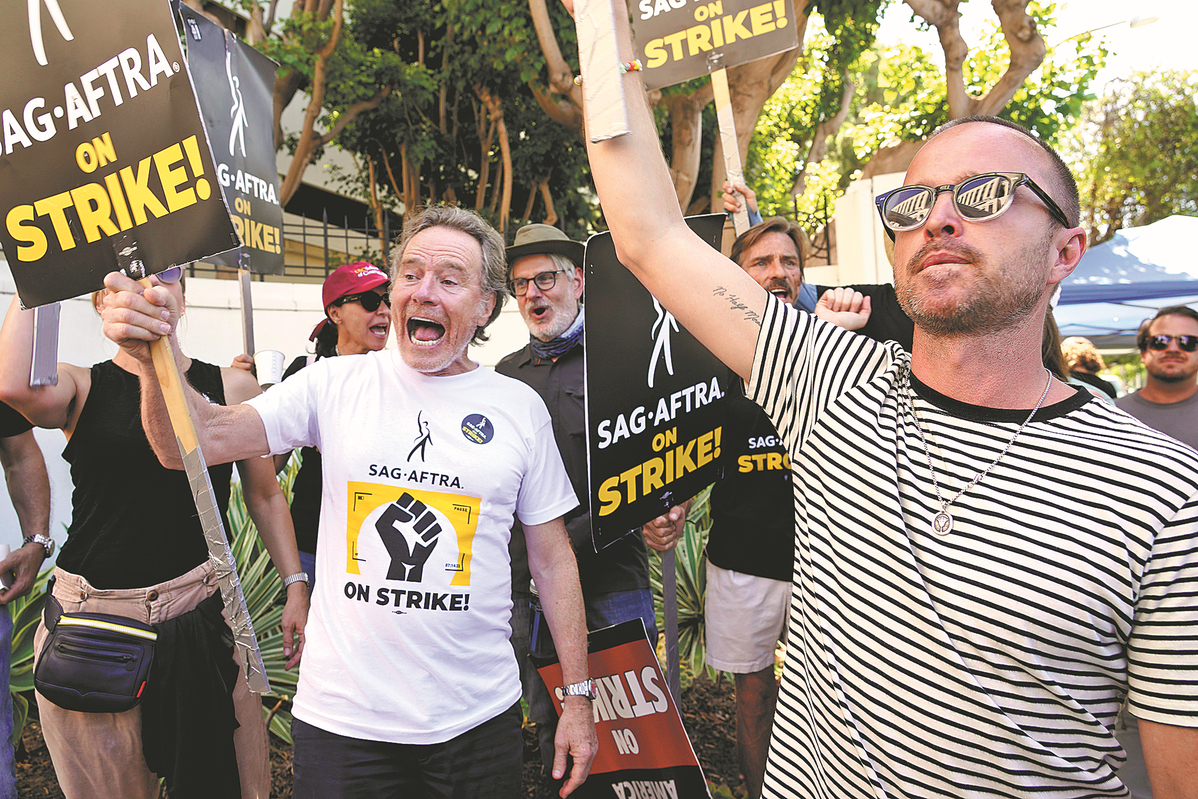
Rising prices trigger protests as Fed's interest rate hikes cause spillover effects worldwide
US actors Bryan Cranston and Aaron Paul met again in August. This time not for the reunion of the Breaking Bad series, but on the picket line in solidarity protests with other Hollywood actors.
Speaking to the crowd, Cranston said, "We just want them to see reality and fairness and come back to the table and talk to us."
Striking actors started the rally in mid-July, more than two months after screenwriters began protests in their bid to get better pay and working conditions under the influence of streaming services and artificial intelligence.
The celebrity-packed picket lines brought more attention to the so-called Hollywood double strike — writers and actors — unseen in 60 years.
From coast to coast, a wave of strikes has gripped the US throughout 2023, rippling across industries such as logistics and automobiles.
The country's United Auto Workers union began a strike in mid-September against all the Big Three automakers, namely Ford Motor, General Motors and Stellantis. The first-ever strike of all three at once in the union's 88-year history came after failed talks on new contracts.
In the past 50 years across the United States, there has been a massive redistribution of wealth, Vermont Senator Bernie Sanders said at a rally, highlighting the rising salaries of the CEOs of the Big Three automakers.
Against this backdrop, the union had reportedly been negotiating for significantly higher pay and new benefits.
"After the pandemic, the US economy grappled with sluggish growth and encountered intense competition from other countries, presenting challenges for businesses," Wang Zhen, a research professor of international politics at the Institute of International Relations, Shanghai Academy of Social Sciences, told China Daily.
During the pandemic, the US implemented stimulus packages to bolster the economy.
"The fiscal expansion policies led to high inflation and elevated the cost of living for the working class," Wang said. "In addition, technological advancements, particularly artificial intelligence, have encroached upon the traditional interests of corporate workers, prompting them to take to the streets to defend their rights."
The US inflation rate started to grow at a more than 2 percent rate from March 2021 and peaked at 9.1 percent in June 2022 to a 40-year high, according to the US Bureau of Labor Statistics.
To tame inflation, the US Federal Reserve raised its benchmark policy interest rate 11 times since March 2022 from the near-zero level to the current 5.25-5.50 percent range, marking the fastest pace in 40 years.
"The Fed is as aggressive as it has been since the early 1980s," Chris Turner, global head of markets at the Dutch banking group ING, was quoted by CNN as saying.
"They're willing to tolerate higher unemployment and a recession", he said. "That's not good for international growth."
Even though inflation has eased from a peak of 9.1 percent last year, it remains too high for the Fed.
The US central bank said it remains "highly attentive to inflation risks" and that it is strongly committed to returning inflation to its 2 percent goal as it left interest rates unchanged on a Dec 13 meeting, a third pause from September.
The rate-setting group pointed to recent indicators showing that economic activity has slowed in the third quarter.
The high rates have put the banking system under pressure, which has seen the collapse of Silicon Valley Bank and Signature Bank in March, and the failure of First Republic Bank in May. Elsewhere, UBS agreed in March to buy Credit Suisse in a rescue move to avert a banking sector meltdown.
"Ripple effects of US financial system strains could lead to tighter credit, sharper slowdown worldwide," said a report by The Wall Street Journal earlier this year. "Turmoil in the US banking sector isn't just a problem for the US. It also increases the risks of a global recession."
Xu Gao, chief economist at Bank of China International, told China Daily, "After the collapse of the Silicon Valley Bank, the growth rate of credit extended to entities by the US banking system showed a slower pace.
"Once the accumulated liquidity is drained, the impact of subsequent liquidity crunch is expected to manifest in the real economy."
Citing the manufacturing purchasing managers index in the US which has run under 50 since November last year, Xu said, "Although the US economy seems to be doing well this year, its role as a driving force for global economic growth has declined."
The World Economic Outlook published by the International Monetary Fund in October said: "Borrowing costs for emerging (markets) and developing economies remain high, constraining priority spending and raising the risk of debt distress.… The danger is of a sharp repricing of risk, especially for emerging markets, that would appreciate further the US dollar, trigger capital outflows, and increase borrowing costs and debt distress."
In November, European Central Bank President Christine Lagarde told the European Parliament that although she expected the weakening of inflationary pressures to continue, "the medium-term outlook for inflation remains surrounded by considerable uncertainty". She said wages would continue to play a pivotal role in driving domestic inflation.
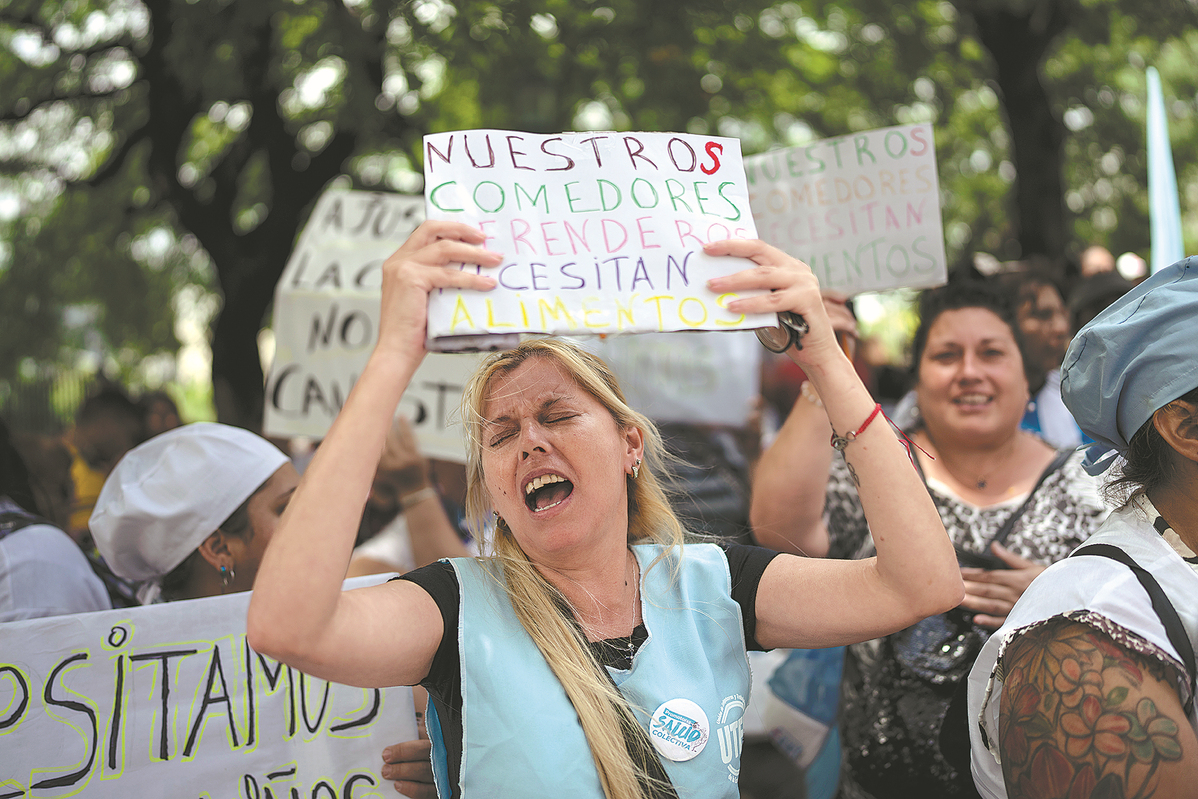
Daily squeeze on budgets
Tomas Hnyk, a Prague resident, told China Daily that ordinary people face a daily squeeze on their budgets.
"The costs of energy and food and their basic services increased by a lot more than their income," he said.
Energy prices have surged, especially after the Russia-Ukraine conflict, which cast a long shadow on the continent as no quick ending is seen, he said.
"Prices went up for almost everything," he said. "Despite inflation being smaller than it was, it is still a big issue. For people with less money, it is a huge deal."
This frustration is not only felt in the Czech Republic, but also across other European countries, as they have experienced a wave of protests, with citizens demanding concrete steps from the government to ease their economic burden.
In France, people protested against an increase in the retirement age. In Germany, striking transportation workers caused major disruptions at airports and bus and train stations.
The United Kingdom also witnessed pay disputes across sectors, with workers demanding higher wages. Strikes in schools, railways and hospitals have become more frequent, notably in the National Health Service, where health workers staged the largest strike in its 75-year history. The financial strain intensified as Birmingham and Nottingham declared bankruptcy in September and November, respectively.
Meanwhile, Africa suffers from high inflation, as highlighted in the IMF Regional Economic Outlook for Sub-Saharan Africa published in October, which said: "Inflation is still too high. Inflation at end 2023 is projected to stay in double digits in 14 countries."
In its Economic Outlook published in late November, the Organization for Economic Cooperation and Development said it expected the global economy to slow down slightly in 2024 as a result of the tightening of monetary policy, weaker trade and dipping consumer confidence.
It projected a global GDP growth of 2.9 percent in 2023, followed by a mild slowdown to 2.7 percent in 2024 and a slight improvement to 3 percent in 2025. Asia is expected to continue to account for the bulk of global growth in 2024-25, as it has done this year.
Observers noted a recent trend of de-globalization, spearheaded by the US, resulting in disruptions to global supply chains.
The US and its Western allies "have been the biggest beneficiaries "of world economic integration and globalization since the end of the Cold War, Wang from the Shanghai Academy of Social Sciences said.
However, since former US president Donald Trump assumed office in 2017, a shift toward anti-globalization policies has been evident, initiating trade and technology wars aimed at curbing the ascent of developing countries, Wang said.
"These policies, among others, failed to achieve the 'manufacturing reshoring' advocated by US policymakers, and have increased the operation costs for enterprises. This, in turn, burdens people across the globe, and poses a challenge to the world economic recovery after the pandemic."
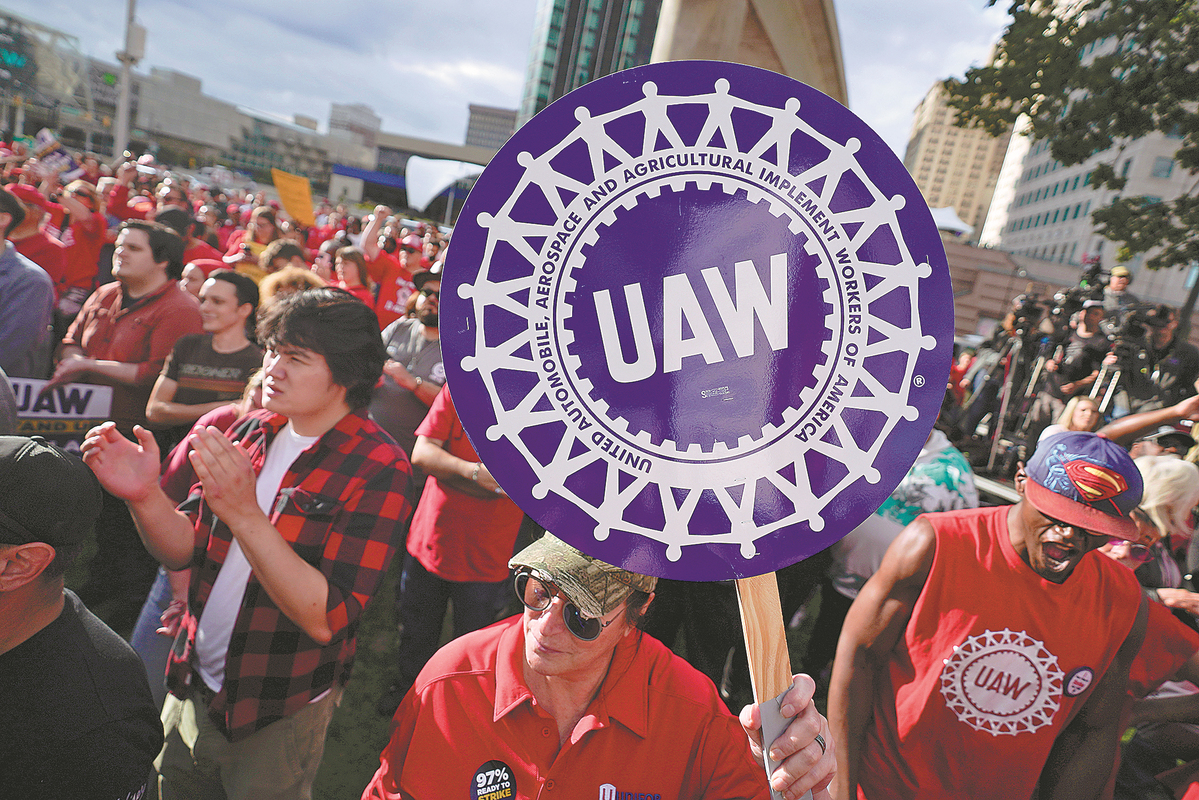
Leading to disruptions
The so-called decoupling or de-risking undeniably leads to disruptions to the global supply chains, said Xu from the Bank of China International. "The potential hurdles and risks associated with this trend raise valid concerns about the overall stability and interconnectedness of the global economic landscape."
Commenting on economic security, Pascal Lamy, former director-general of the World Trade Organization, said: "You cannot do anything just by waving your flag of national security. This would destroy the multilateral trading system. So we have an issue which I think necessitates better attention."
As the US monetary tightening cycle nears an end, there is a real risk of recession for the US whose economy stands at a "precarious crossroads", Xu said, pointing to challenges to global economic recovery.
"Although overall if I look at these three engines — technology, ideology, and peace or geopolitical tensions or conflicts — I still believe that these engines will keep pushing for globalization," Lamy told a recent event hosted by the Center for China and Globalization.
2024 will be a pivotal year for elections worldwide, coupled with the Russia-Ukraine conflict and the Gaza crisis, which will add to uncertainties across the globe, Wang said.
Although headwinds abound, Wang remains cautiously optimistic about the potential growth.
"It is still possible for the international community to maintain overall peace. After the pandemic, the willingness of countries around the world to strive for economic development has not waned, and the momentum of technological change has not stalled," he said.
"Additionally, the negative repercussions of the Fed's rate hikes will be absorbed gradually, and it is widely anticipated that the Fed will pivot to monetary easing next year. These factors combined will bring new impetus and hope to the recovery of the world economy."
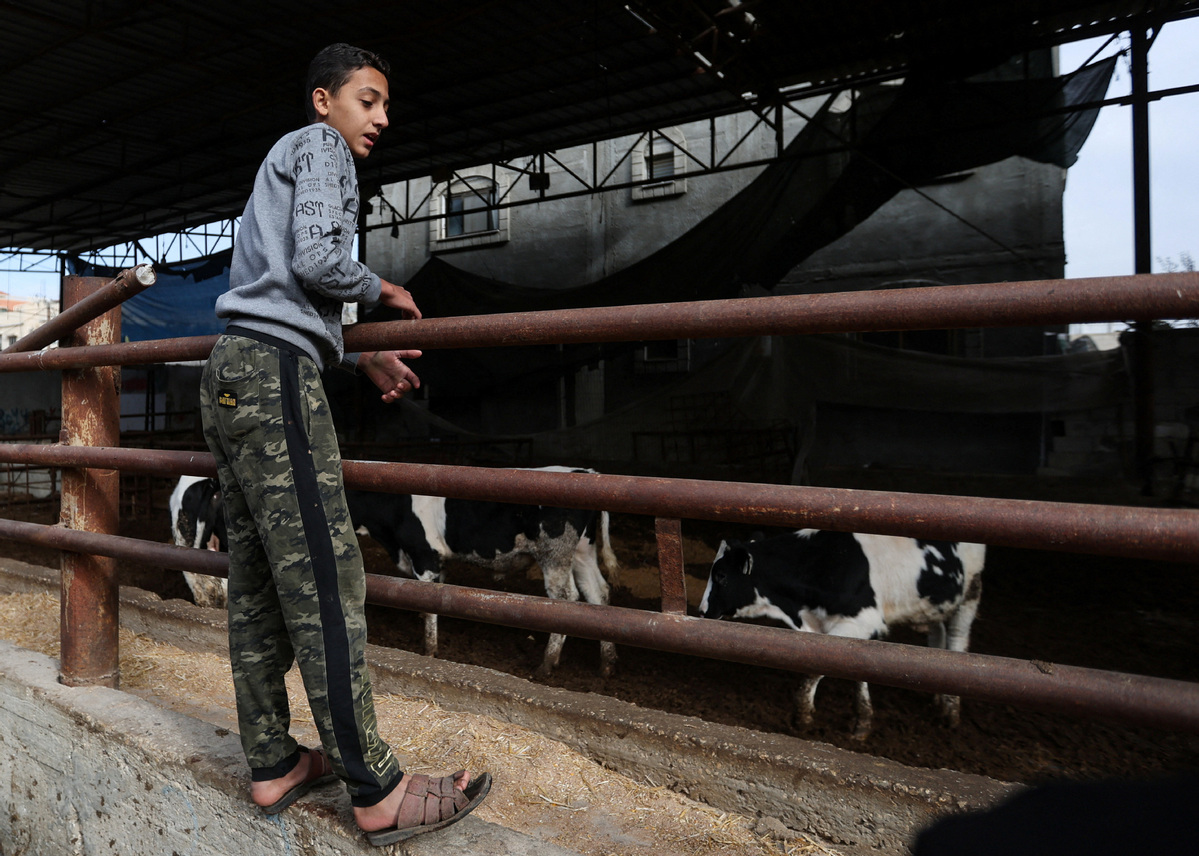
Prior to Oct 7, Ahmed Sourani, founder and general coordinator of The Gaza Urban and Peri-Urban Agriculture Platform, had big plans for the 250 women agricultural entrepreneurs or "agripreneurs" that his nonprofit group was working with in the area.
Sourani had taken part in the Zayed Sustainability Prize — an annual award established by the United Arab Emirates to recognize excellence in renewable energy and sustainability solutions — and won on Dec 1, in the food category, in recognition of his group's contributions to the agricultural sector benefiting more than 7,000 people.
Sourani would have wanted to build on his organization's success, since its establishment in 2013, such as focusing on the capacity-building of the women agripreneurs and broadening the channels of exchanges in Palestine, as well as Jordan and Egypt.
But after the latest round of conflict broke out in Gaza, Sourani's plans may need to be put on hold indefinitely.
"Now the priorities (have) changed and we will be moving according to our emergency response on land," Sourani said on the sidelines of the recent COP28 climate meeting in Dubai.
His group will have a Herculean task ahead.
According to an update on Dec 15 published by the United Nations Satellite Centre, or UNOSAT, the latest satellite imagery analysis "uncovered distressing trends in the agricultural landscape of the Gaza Strip", illuminating the significant impact of the ongoing conflict on the health and density of crops.
Compared to the average of the previous six years, a staggering 18 percent of arable land in the Gaza Strip "has experienced a substantial decline in health and density". This stark revelation emerges, it said, from a comprehensive analysis employing the Normalized Difference Vegetation Index and multi-temporal classification techniques.
"UNOSAT's methodology focused on evaluating changes in agricultural areas, considering the period from 2017 to 2023. The assessment pinpointed December 2023 as a critical time frame, revealing a noticeable deterioration in crop health and density compared to the preceding six seasons," the report said.
"The decline observed in crop health is attributed to various conflict-related dynamics, including notably razing, heavy vehicle activity, bombing and shelling. The analysis extends beyond active crop fields, encompassing fallow lands and household gardens, offering a comprehensive view of the agricultural impact," it said.
Sourani said his group had to work side by side with Palestinian farmers, urban family farmers, notably women, "to make the best use of the available resources".
Given the redirection out of necessity, Sourani said he would use some of the prize money to first help the women agripreneurs.
The help would also restore their ability for production, he said. The other priority is to continue the program for community-led marketing and provide food that is produced by women in Gaza.
"Our biggest wish, our biggest hope, our biggest prayer now, is for a quick, immediate cease-fire."
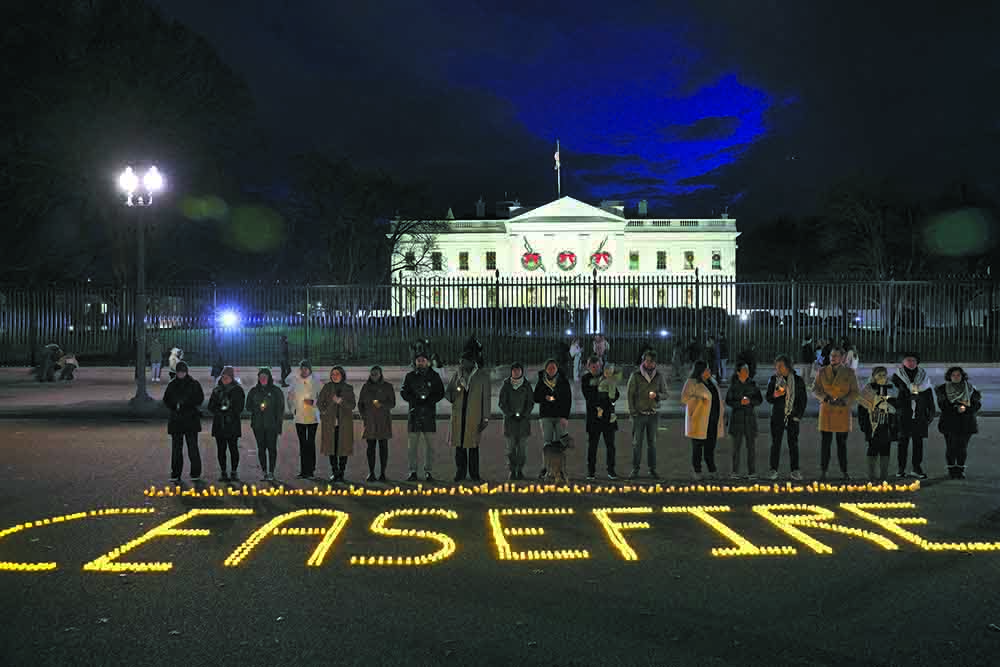
Civilians' lives at stake as calls intensify for cease-fire, delivery of humanitarian aid
More than two months into the violent conflict in Gaza, Abdullah Waleed and his family members had a close brush with death in the early hours of the morning.
An Israeli airstrike at 3 am instantly leveled his neighbor's house and damaged his own home, leaving 24 people, mostly women and children, dead.
"It was a terrifying moment for our family, especially our kids. There is no place safe in Gaza," said the senior fellow and Palestine coordinator at Asia Middle East Center for Research and Dialogue currently based in Rafah, south of Gaza.
Waleed, a father of two boys, communicated intermittently via mobile phone messaging service channels. He said internet connection was bad because much of the infrastructure had been damaged by the Israelis.
"Our neighborhood was among the 'safe zones' announced by (Israel Defense Forces) where they've asked people to (flee). Yet, they keep on attacking civilians in our neighborhood," Waleed said.
He and his family are now among the 1.9 million — out of Gaza's 2.3 million population — who have been internally displaced since fighting broke out between Hamas and Israeli forces on Oct 7.
The surprise attack on Israel by Hamas militants on that day left 1,200 dead, while 240 people were taken as hostages.
In retaliation, Israel became determined to wipe out Hamas, with Prime Minister Benjamin Netanyahu vowing that his country would fight "until victory" as the Palestinian death toll reached 20,674 as of Tuesday, according to the Ministry of Health in Gaza.
Whether Waleed would live to see another day depends very much on the world coming together to pressure Israel and Hamas to agree to a sustainable cease-fire deal.
The UN Security Council on Friday passed a key resolution, emphasizing the immediate acceleration of aid deliveries to the distressed civilians in Gaza, but without the original call for an "urgent suspension of hostilities" between Israel and Hamas. Israel and the US oppose a cease-fire because they believe it would only benefit Hamas.
On Monday, Israel and Hamas gave cool public receptions to an Egyptian proposal to end the conflict. But they stopped short of rejecting the plan altogether, raising the possibility of a new round of diplomacy to halt the Israeli offensive in the Gaza Strip.
The Egyptian plan calls for a phased hostage release and the formation of a Palestinian government of experts to administer the Gaza Strip and occupied West Bank, according to a senior Egyptian official.
Netanyahu did not comment directly on the proposal. But speaking to members of his Likud Party, he said he was determined to press ahead with Israel's offensive.
"The situation is so complicated and sad to the point that we who live here can't describe it. The aid that enters Gaza is so minimal and not sufficient at all. It's a drop in the ocean. Most people and places in Gaza Strip don't receive any of this aid at all, mainly due to the Israeli ground invasion and attacks," Waleed said.
"Winter is making life much more complicated. It's the cold season here in Gaza with heavy rain and wind. People, mainly those who live in tents, are suffering a lot. Most people can't afford to buy anything due to the collapse in the economy," he said.
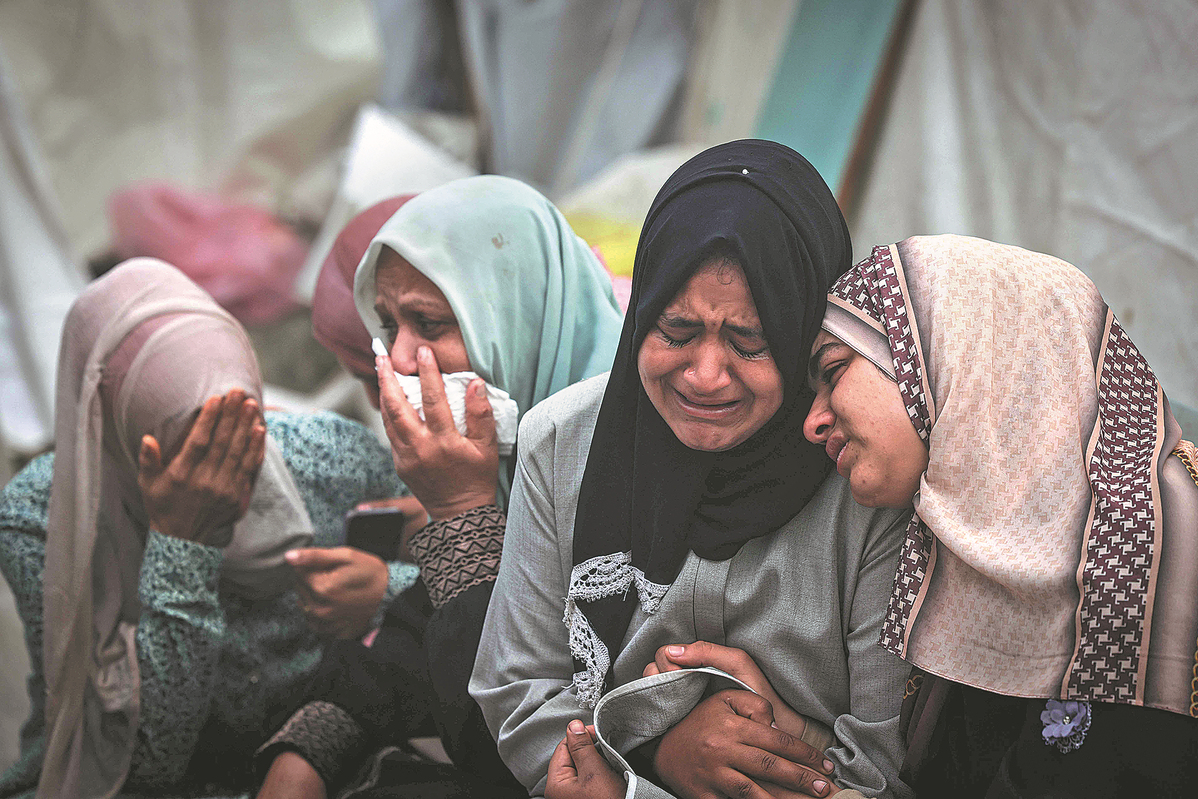
Crucial medical care
Lujain Alqodmani, president of the World Medical Association, said that the group "stands in solidarity with all the physicians and healthcare personnel who are on the front line", risking their lives to provide crucial medical care "during these challenging times", and called for international humanitarian laws to be respected.
"We remain committed to our mission of advocating for the ethical practice of medicine and promoting peace and respect for humanitarian principles. We urgently call for safe provision of medical and health equipment and humanitarian supplies for all people in Gaza," Alqodmani said.
"Civilians, healthcare facilities, personnel and vehicles are never a target. All people in Gaza have the right to safely access healthcare as all people everywhere even during war. This is their fundamental human right that should always be protected and never compromised."
Meanwhile, with the UN Office for the Coordination of Humanitarian Affairs reporting that telecommunications and internet services had been cut off in Gaza, the International Telecommunication Union has called for the protection of telecommunications infrastructure and "the essential right to communicate".
"Digital connectivity is essential to social and economic development. Connectivity is also critical for people to make distress calls and reach emergency health services. ITU has called for the protection of telecommunications infrastructure and the essential right to communicate," it said.
Both Israel and Hamas have been accused of committing war crimes in the latest conflict. According to the Rome Statute of the International Criminal Court, the definition of a war crime includes wilful killing, torture, inhuman treatment, extensive destruction and appropriation of property not justified by military necessity and carried out unlawfully and wantonly, and taking of hostages.
Abdalfatah Asqool, an international law lecturer at the University of Palestine in the Gaza Strip, said that under international humanitarian law, there "are many principles to govern any conflict" that may break out between any parties.
One tenet under the law is the proportionality principle, which means there must be (proportionality) between civilian damage and the military benefits from any attacks or military operations, Asqool said.
Israelis and Palestinians have been locked in a territory dispute for decades, and their conflict continues to be one of the most contentious issues in the Middle East.
Jasim Husain, a Gulf analyst and former member of Bahrain's Parliament, said that not much attention was being put into finding a comprehensive political solution to the crisis.
"Any solution must be based on the two-states notion," Husain said.
The 22-member Arab League, which also includes six countries that make up the Gulf Cooperation Council, has repeatedly condemned the Gaza assault but its member states differ in response when dealing with Israel.
"Leading Arab and Gulf countries are focusing on a permanent cease-fire, ensuring steady entry of aid to Gaza due to the humanitarian situation and needs," Husain said. He added that the Arab and Gulf countries "have different priorities" and their own agendas with regard to socioeconomic and sociopolitical matters.
Hussein Maklad, a professor of international relations at Damascus University, said that the current situation also reflects how the US government is "in crisis".
The US has fought "against innocent people in Gaza" by providing Israel with weapons when the US Congress appropriated $14.3 billion in assistance to Israel.
In the wake of the Hamas attack on Oct 7, US President Joe Biden declared support for Israel, ramping up US military support by deploying the USS Gerald R. Ford aircraft carrier and another warship in the Mediterranean Sea.
The US recently announced the creation of "Operation Prosperity Guardian", a naval protection force in the Red Sea following attacks from Yemen's Houthi militia on merchant shipping.

Washington's desire
Maklad said this showed Washington's desire for the conflict to continue and make the Gaza Strip uninhabitable and "committing more massacres and ethnic cleansing".
" (Israeli) practices in the Gaza Strip not only affect the Palestinians. They affect global peace. So providing Israel with the military supplies would also affect global peace," said Asqool, the law expert.
A growing number of Western or US-allied countries, which had earlier supported Israel's right to self-defense, are now joining the calls for a humanitarian cease-fire, building up pressure on the US and its support for Israel.
China's permanent representative to the United Nations, Zhang Jun, said in a UNSC meeting that only a cease-fire could prevent greater civilian casualties, including those of the hostages, and prevent a regional conflict from spiraling out of control.
He also urged for a constructive approach to the Gaza crisis as the UNSC hammered out a resolution. As for the West Bank, he said the council "must play its part and uphold fairness and justice as violence and restrictions continue there".
China in October announced that it was providing $2.05 million in emergency humanitarian assistance to Gaza.
On Dec 3, Diab al-Louh, the ambassador of Palestine to Egypt, extended his country's sincere gratitude to the Chinese government and people for providing timely humanitarian aid supplies to the Gaza Strip.
Chinese President Xi Jinping stated China's principled position on the current Palestinian-Israeli situation on a number of occasions. He stressed the need for an immediate cease-fire and end to the fighting, ensuring that humanitarian corridors are safe and unimpeded, and preventing the expansion of the conflict. He pointed out that the fundamental way out of the conflict is the two-state solution, building international consensus for peace, and working toward a comprehensive, just and lasting settlement of the Palestinian question at an early date, according to the position paper on resolving the Palestinian-Israeli issue released by China's Foreign Ministry on Nov 30.
Husain, from Bahrain, called China's consistent position on the Palestinian-Israeli issue "very principled" as it "seeks a permanent and lasting solution" to the Israel-Palestine crisis.
Maklad from Syria said China "now is a great power" and that all "would want to see a big role for China in the international system".
China achieved a major success when it played a broker role between Saudi Arabia and Iran. It is focusing on the implementation of the two-state solution, Maklad said.
"China is more acceptable (to) the Arab people in playing a broker's role or mediator in the settlement of the Palestinian cause," he said.
Agencies contributed to this story.
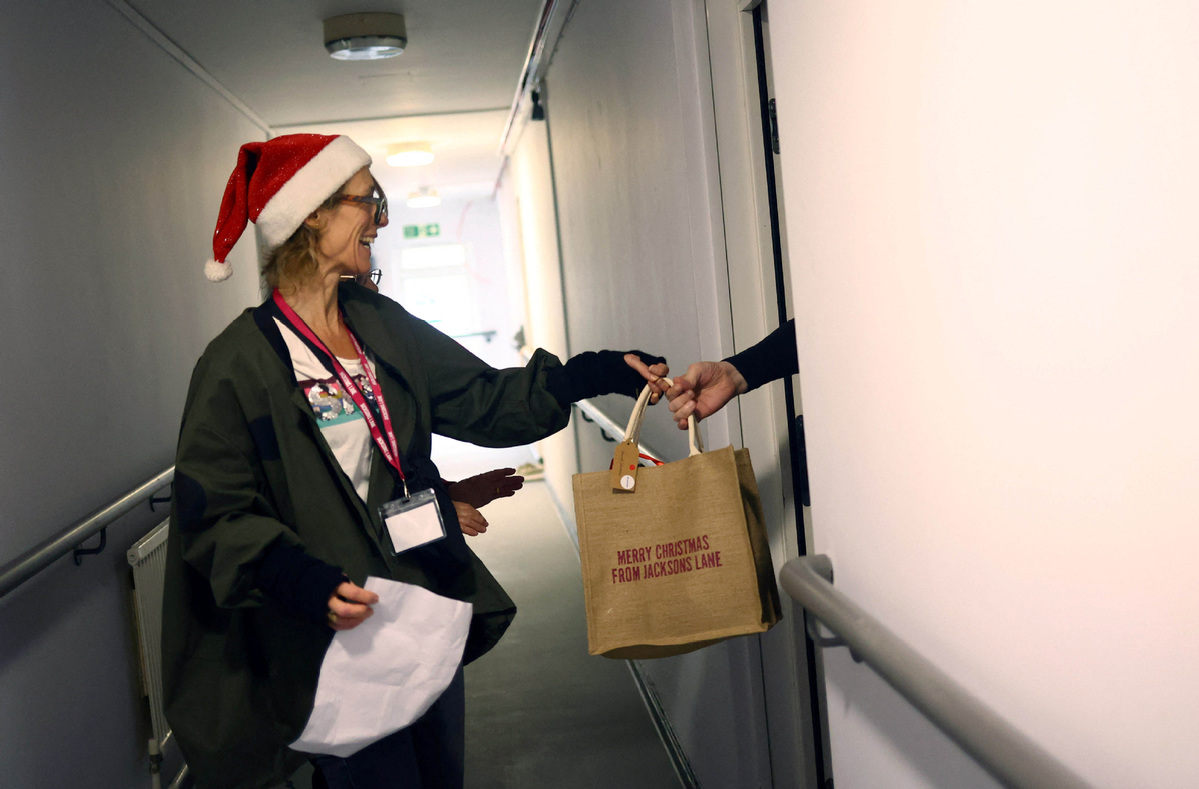
Christmas is a time associated with family gatherings, home comforts, and the giving and receiving of gifts and goodwill, but for many displaced people these are some of the most significant things missing from life.
Even for those who have reached the end of their geographical migrant journey, the administrative one, which could decide where they spend the rest of their lives, can continue for months or years, often spent in temporary accommodation, so Christmas can be a particularly tough time.
In towns and cities across the United Kingdom, volunteers play an important role in helping displaced arrivals feel at least slightly at home and giving them some seasonal cheer.
Bassam Mahfouz is the director of Refugee Action Kingston, in southwest London, which this year supported about 1,500 people who are either refugees or seeking asylum.
He said that during Christmas, more than ever, this and similar groups across the country could not function without the contribution of volunteers trying to make the lives of those less fortunate in the depths of winter that little bit less bleak.
"We have around 145 volunteers across all sections of the service we offer — language teachers, counselors, people who help with job hunting, even basic needs and feeding people — they all help," he said.
"Our clients' lives are tough enough at the best of times, but it's even more challenging at Christmas. Some don't know whether they have a future in this country, and some will be living in tiny, confined spaces, so there's no special Christmas deal for them there.
Community connection
"We know that social isolation can be as bad for your physical health as smoking 15 cigarettes a day, so we bring people together in a community hub to learn and connect with one another, and to be happy in a way they can't be, stuck in their rooms."
Of the 1,500 people Refugee Action Kingston worked with in 2022-23, 16 percent came from Afghanistan, 15 percent from Syria, 14 percent from Iran and 9 percent from Iraq. Of them, 300 used English language classes, and 100 were helped to secure improved immigration status, so the work done by volunteers makes a life-changing difference.
"Our areas of operation include basic needs, such as legal advice and advocacy, to make sure people make appropriate representation in relation to their cases and what they're entitled to," Mahfouz said.
"Almost all these people come to us with trauma — the trauma they left behind, the trauma of how they got here, or the trauma of being processed. Sometimes you will see child migrants playing, and they act out what they've seen in the places where they've come from, and it makes you realize the horrors they've gone through.
"There's so much change, and so much for them to deal with, that we try to help in whatever little way we can, like offering somewhere for people to gather and feel warm and get fed at Christmas."
Refugee Action Kingston has been working with refugees and migrants for more than 30 years, and it is one of many such groups across the country doing their bit to make newcomers feel a little bit more secure.
"About half the people we work with have been given their status and remain in Kingston thriving, which is fantastic," Mahfouz said.
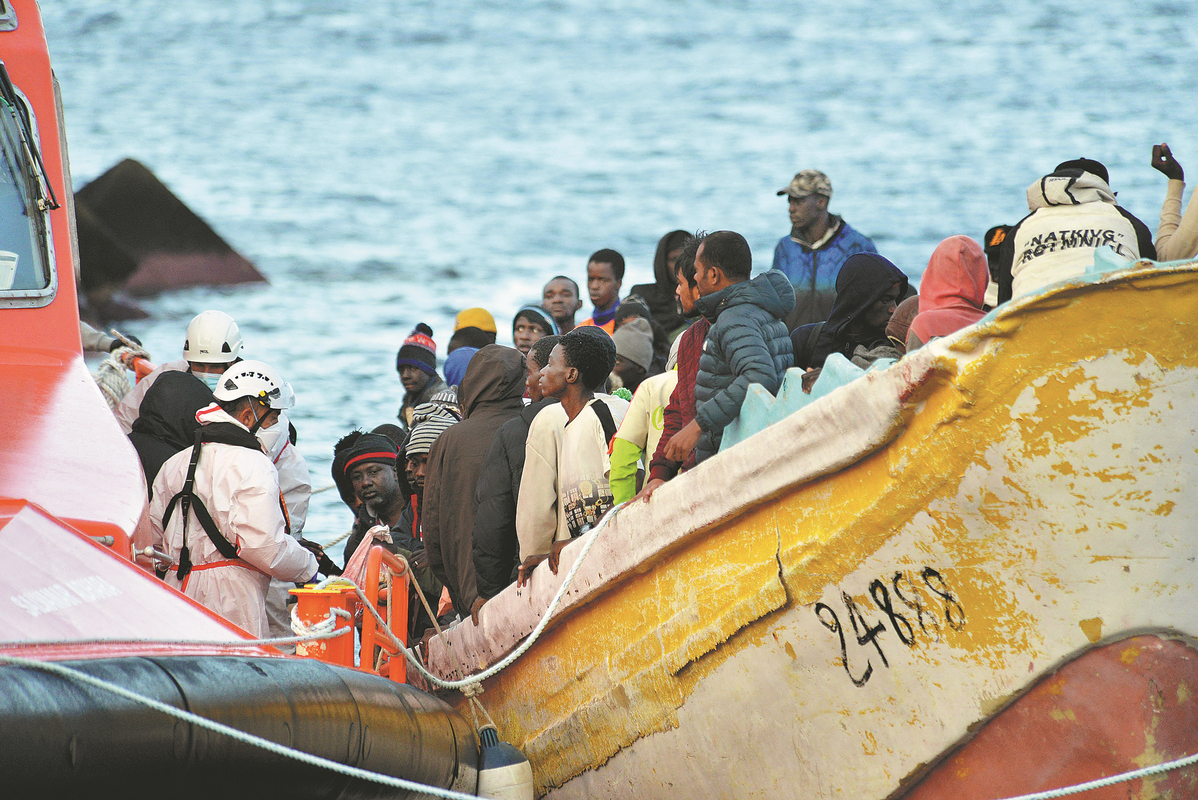
Perilous journeys to Europe exacerbate divides, putting at risk continent's unity
From the collapse of empires in the aftermath of World War I to the fallout following the breakup of Yugoslavia, mass migration was a regular feature of life in 20th century Europe.
In the 21st century, migration remains widespread, but now it is mainly events and people from outside Europe that drive it.

From nearly 100 people dying after a boat sank off the southern coast of Italy in February to the electoral success of the far-right in the Netherlands in November, this year the human cost and political impact of immigration have been inescapable, and there is little sign of that relenting in 2024.
The current migration challenge is from without, not within. Years of instability in countries such as Afghanistan, Syria and Libya have caused tens of thousands of people to leave, now joined by others from sub-Saharan Africa.
An extensive trafficking network results in many of them being willing to risk their lives to cross the Mediterranean Sea to Europe, as part of a huge ecosystem of human suffering whose complexity is airbrushed out by simplistic headlines.
In her award-winning book My Fourth Time, We Drowned: Seeking Refuge on the World's Deadliest Migration Route, journalist Sally Hayden immersed herself in the migrants' world.
Organized crime, trafficking, abuse and institutional corruption all contribute to a grim picture of which small boats full of individuals are just a minor detail, but Hayden also highlights the significance of the mobile phone as an instigator and a chronicler of the migration crisis.
"Smartphones had … enabled Africans to see what life is like in Western countries," she wrote. With online access, "it is easy to compare lives".
Although much of Europe is increasingly in union on many political matters, when it comes to migration, national attitudes vary wildly.
"Over the last 15 years, there have been arrivals across the Mediterranean at quite a steady level — the peak was in 2015-16, after the trouble started in Syria, when it was around 1.2 million people, but since then it's gone back down," said Andrew Geddes, director of the Migration Policy Centre at the Robert Schuman Centre in Florence, Italy.
With its position of geographical prominence, projecting toward North Africa, Italy is one of the top destinations for people trying to enter Europe via the Mediterranean.
By November, about 150,000 sea migrants had arrived in Italy alone so far this year, a figure about 50 percent higher than in the corresponding period a year earlier, Reuters reported.
"It's fueled by conflict and inequality," Geddes said. "This year, there were predictions of 200,000 people — that hasn't happened, but the numbers are still up on last year."

Feeling the strain
Residents of the southern Italian island of Lampedusa were nominated for the Nobel Peace Prize in 2016 for their enlightened attitude toward migrants. However, after almost 10,000 arrived in one week in September this year, even the most charitable of people began to feel the strain.
Italy has called upon its European partners to share the burden of dealing with so many new arrivals, which has put the unity of Europe at risk.
"Countries like Italy or Greece, another major arrival point, want an allocation of responsibilities, but some other countries don't agree," Geddes said. "The events of 2015-16 exposed differences between nations on how they should share responsibilities — there's more agreement now on the need for cooperation, but it is still a sticking point."
In France, President Emmanuel Macron's flagship immigration policy has limped through Parliament after criticism and initial rejection from all sides, and this year has also seen a significant change of heart in Germany, for so long the desired destination of many migrants.
Statistics from the European Union Agency for Asylum showed that more than 60 percent of asylum applications submitted in the European Union by Syrians in the first half of this year were made in Germany, and for many years, the country has been welcoming.
In 2015, then-chancellor Angela Merkel said "We can do this" as she announced an open-door immigration policy, adding, "If we start having to apologize for showing a friendly face in an emergency situation, then this is not my country."
But in 2023, with years of steady migration having been added to by an estimated 1 million Russia-Ukraine conflict refugees, Chancellor Olaf Scholz has become notably less welcoming.
In an October interview with news magazine Der Spiegel, he said "too many are coming" and "we must finally deport on a large scale those who have no right to stay in Germany … we must deport more and faster".
The far-right, anti-immigration Alternative for Germany party, previously mainly popular in the east of the country, has grown in support nationwide, prompting co-leader Alice Weidel to say it "has become a major all-German party".
"So we have arrived," Weidel said.
Geddes from Florence said, "Over the last year or so, a significant change across the EU is that very prominent right-wing parties have been setting the agenda on migration.
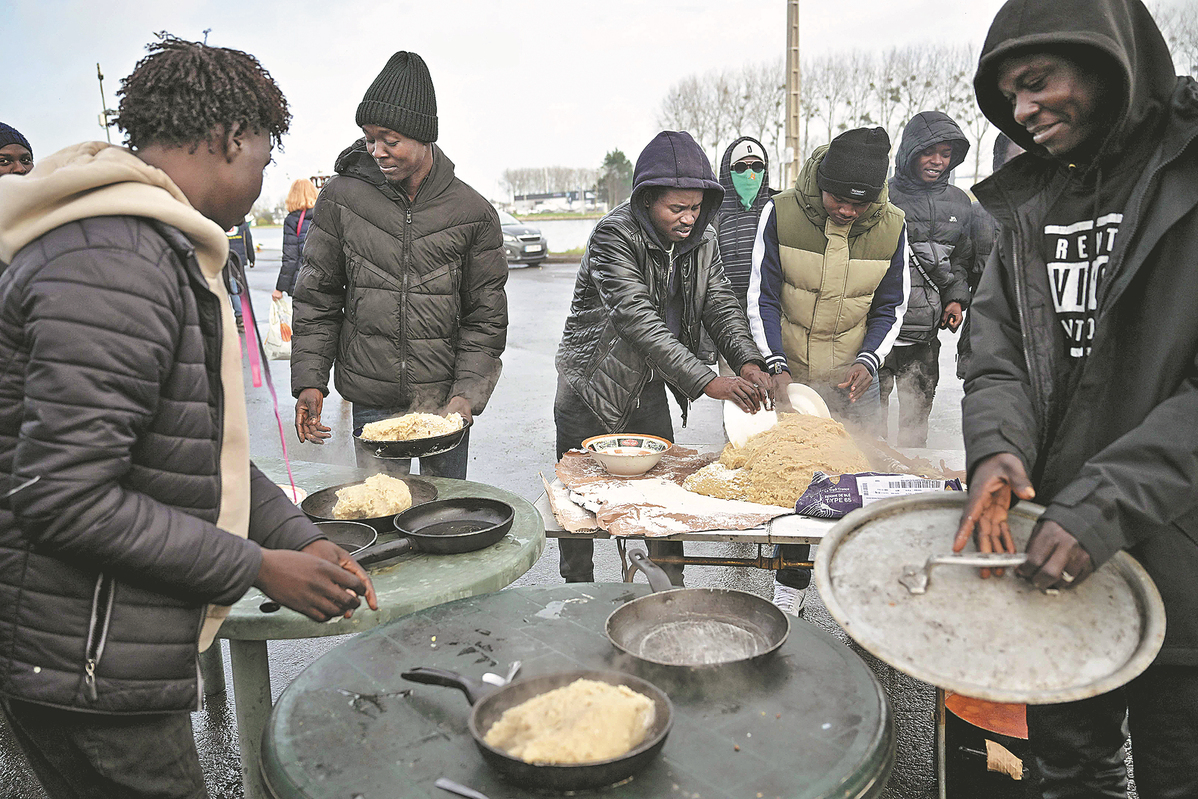
'Deeply problematic'
"It isn't necessarily new but what we're seeing is an intensification of feeling toward looking for external solutions. It's deeply problematic from a legal point of view, but countries like Austria, Denmark and Germany are looking at the deal Italy has struck with Albania and thinking, 'Is there a way we can create something?'"
The external solution Italy's right-wing Prime Minister Giorgia Meloni has found in Albania would see her country fund holding centers there for up to 36,000 people a year, just two years after Albania's Prime Minister Edi Rama said his country "will never be that place where very rich countries establish camps to dump migrants".
Geddes said the only logical explanation for Rama's change of heart is one that reinforces the dehumanized feeling of migrants being treated as bargaining chips.
"The only way you can understand that is in the context of Albania pursuing EU membership, which is not an unrealistic prospect," he said. "This deal helps ensure support from Italy."
When he announced the deal to Parliament, Italy's Foreign Minister Antonio Tajani was at pains to point out that it was not like the United Kingdom's proposed deal with Rwanda, which has cost UK taxpayers more than 290 million pounds ($370 million), would only cater for a tiny number of cases, and has so far produced no results whatsoever.
However, within weeks of its announcement, Albania's constitutional court temporarily blocked the deal, to check if it violates the country's Constitution, and Meloni has since admitted the issue is "the most complex phenomenon I've ever had to deal with".
The problem British Prime Minister Rishi Sunak has encountered is, ironically, one that did not exist before Britain's exit from the EU, a campaign fought under the slogan of taking back control.
It is tearing his government apart and has forged a dangerously sharp-edged political weapon, which could prove decisive in the British general election due in the next 12 months. This is the small boats crisis.
According to figures published by the Home Office in November, 27,284 people have been detected so far this year crossing the English Channel, which is about one-third less than the figure from the corresponding date in last year.
This statistic barely existed before Brexit, however, as people attempting illegal entry could be sent back to the EU. With no replacement provision for this arrangement in the Brexit Withdrawal Agreement, the UK now has nowhere to put these new arrivals, and they know it — so they come.
At the start of this year, Sunak pledged to "pass new laws to stop small boats, making sure that if you come to this country illegally, you are detained and swiftly removed…those are the people's priorities".
"They are your government's priorities. And we will either have achieved them or not," he added.
Sunak is having another go at passing the Rwanda policy which has so far consistently been rejected by the courts and, at huge cost, achieved nothing. It has, however, saddled him with a big problem, created by a hard-line devotion to Brexit.
"The ability to return asylum-seekers was linked to being in the EU, through something called the Dublin Regulation, but that has fallen off a cliff as the UK is no longer part of that system," Geddes said. "The only way you can resolve this is to find some kind of accommodation with the EU." But that would be heresy to Brexit believers.
Lurch to right
In Europe, next year's political fallout of the great migration question could be a lurch to the right.
"June's European Parliament elections will be key," Geddes said. "They could play a big part of defining the next five years.
"Currently, right-wing parties are in a strong position, so you're looking at a shift in the balance of power in EU institutions, and in key member states, which could set the direction of travel on issues such as border control, security and external solutions."
All the while, the boats still come, across the Mediterranean and the English Channel. On board are people with cellphones, which encourage them to pursue their dreams of what they think is a better life, and record the nightmarish reality of their journeys.
Those people may never reach the capital cities of Europe, but the journeys they make and will continue to make are shaping decisions made in those cities, which could have ramifications shaping the lives of millions of people, settled and displaced, for years to come.
For most Europeans, the 1.4 billion Chinese look pretty much the same; for many Chinese, Europeans also seem identical. However, my experience of covering the European Union and its 27 member states in the past five years has allowed me to see its diversity, strength and weakness.
I was impressed by how well Europeans have preserved their old cities as I visited many of them in past years. Comparatively, Chinese cities have bulldozed way too many historical neighborhoods in the past decades of rapid modernization.
Preserving history sometimes does mean a sacrifice of comfort having to drive and walk on charming but narrow and bumpy pebble streets often with no sidewalks, not so friendly to old folks.
The Schengen Agreement has made travel much easier, and I hope that there will be a similar one in East Asia where people can travel visa-free and borders are made less meaningful.
Covering the elections from France and Germany to Italy and Belgium has been a great way to understand the different political parties and how they form coalition governments.
I have learned how Europeans are different from country to country, but I am still trying to discover more nuances.
The Russia-Ukraine conflict has brought a bad feeling about the continent which triggered two world wars. The EU's approach in addressing the conflict and its lack of diplomacy are deeply worrying.
The outsized influence of the United States is felt across Europe in virtually every field, whether in politics or news media. It has prevented the EU from effectively seeking its "strategic autonomy", something French President Emmanuel Macron was passionate about for a while.
After three years of pandemic, Chinese tourists are getting ready to visit Europe again, but the Schengen visa application takes much longer time while the flights have not resumed to pre-pandemic levels.
China's recent announcement to allow visa-free travel for citizens of five EU member states — France, Germany, Italy, the Netherlands and Spain — is a goodwill gesture. Hopefully, it will be expanded to attract more Europeans to China to see the country — its diversity, strength and weakness. China is much larger in territory, population and, now the economy, than the 27 EU member states combined.
On my first trip back to China in four years after the pandemic, I was also struck by the many changes. Life in my home city Shanghai is much more convenient thanks to the subway system, the longest in the world. There are so many electric cars, and the city buses have gone largely electric. E-commerce has flourished, and the efficient delivery service is among the best in the world.
A trip from Shanghai to Suzhou in the neighboring Jiangsu province now takes only 25 minutes on a high-speed train, and you no longer need a ticket but board the train with the ID card.
When I visited my cousin in Yinchuan, Ningxia Hui autonomous region, a relatively underdeveloped region in Northwest China, I was struck by the sea changes there in the past two decades. Its skyline, roads, train station, museums and even wineries can rival many in Europe (by the way, my hotel room was on the 47th floor). And it is regarded a third-tier city in China.
I have drawn a long list of Chinese cities that I want to visit and revisit after working abroad as a foreign correspondent for 14 years. I hope more Europeans and people from all over the world will visit China to see the country with their own eyes.
Seeing is believing, and good relations are based on good mutual understanding.
Despite challenges, leaders see avenues for growth, mutual benefits at summit
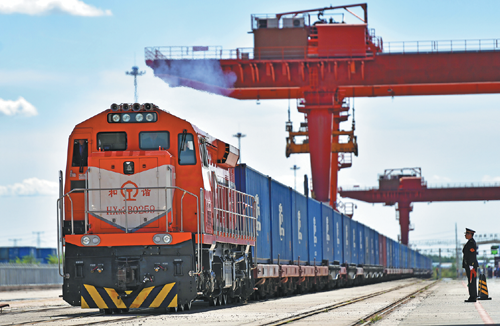
China and the European Union are seeking to stabilize and expand their relations despite differences and challenges on multiple fronts.
Ding Chun, director of the Center for European Studies at Fudan University in Shanghai, said the 24th China-EU Summit held in Beijing on Dec 7 has shown that China-EU relations this year "began low but ended high", referring to the tougher tone earlier on the EU side, which had often parroted Washington's rhetoric.
"It shows that the two sides are looking to the future and are more pragmatic in tackling differences. This is an important step in stabilizing the relationship," Ding said.
Bilateral relations have deteriorated in the past few years amid increasing geopolitical tensions between China and the United States, and with the Russia-Ukraine conflict now in its 23rd month.
Tit-for-tat sanctions between China and the EU in 2021 led the European Parliament to freeze the ratification of the China-EU Comprehensive Agreement on Investment, which concluded in December 2020 after seven years of negotiations.
However, leaders on both sides have attached great importance to the bilateral relationship at the latest Beijing summit.
Chinese President Xi Jinping told EU leaders attending the summit — European Council President Charles Michel and European Commission President Ursula von der Leyen — that China and the EU are two major forces advancing multipolarity, two major markets in support of globalization and two major civilizations championing diversity.
The bilateral relations are showing a good momentum of consolidation and growth, he said, and the China-EU high-level dialogues in the strategic, economic and trade, green and digital fields have produced rich outcomes.
"This serves the interests of both sides and meets the expectations of our peoples," he said.
"As China pursues high-quality development and high-standard opening-up, it sees the EU as a key partner for economic and trade cooperation, a preferred partner for scientific and technological cooperation, and a trustworthy partner for industrial and supply chain cooperation."
The summit took place following several high-level dialogues and visits.
In October, EU foreign policy chief Josep Borrell and Chinese Foreign Minister Wang Yi held the 12th China-EU High-Level Strategic Dialogue in Beijing, while European Commission Executive Vice-President Valdis Dombrovskis co-chaired the 10th China-EU High-level Economic and Trade Dialogue with Chinese Vice-Premier He Lifeng in Beijing in September.
Michel also applauded the relaunch of high-level dialogues on important issues.
"We are united in our commitment to pursue a stable and mutually beneficial relationship with China, a commitment and a relationship that we wish to be based on the principles of transparency, predictability and reciprocity," he said, citing the EU's China policy coming out of the EU summit in June.
Von der Leyen described her second trip to China this year as demonstrating how the EU attaches importance to its major relationship with China.
"We have massive trade between us — 2.3 billion euros ($2.5 billion) a day — and important investment stakes in each other's economies," she said.
Bilateral trade of goods between China and the EU hit a record high of 857 billion euros last year, an increase of 23 percent year-on-year, according to EU statistics. China and the EU are each other's second-largest trade partner.
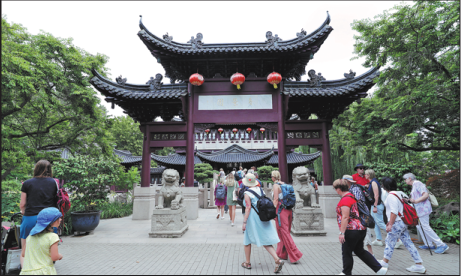
Shared interest
"And as major powers in the world, the European Union and China have global responsibilities. We have a shared interest in peace and security, in the effective functioning of the rules-based international order, and to find solutions to global challenges," von der Leyen said.
This month's Beijing summit covered a wide range of issues from strategic bilateral relations to global governance and global and regional hot spot issues.
Lai Suetyi, an associate professor of the Center for European Studies at the Guangdong University of Foreign Studies, said the 24 summits from 1998 to 2023 show how important China and the EU see each other.
"The return to face-to-face setting this time is definitely a positive element. Also, having the high-level people-to-people dialogue relaunched is good news," she said.
"We cannot deny that mistrust has grown in the past few years. Henceforth, dialogue becomes even more essential."
Lai dismissed the criticism on the absence of joint statement or joint news conference, and said she sees it as a maturity of the relationship.
"We should not be tied by bureaucracy, but focus on actual communication and understanding. Moreover, it demonstrates that both China and the EU walk the walk that we can respect our differences."
A new EU policy on China since March 2019 defines the latter as a cooperation partner, economic competitor and systemic rival. China has voiced strong disagreement over the term "systemic rival" since many Chinese people associate the words with hostility and confrontation.
China has emphasized the China-EU comprehensive strategic partnership, which marks its 20th anniversary this year.
Following the 12th round of China-EU High-Level Strategic Dialogue in Beijing on Oct 13, Wang said, "China and the EU are partners first and foremost, with far more consensus than differences."
Borrell said in a blog post on Dec 12 that Chinese partners pushed back against being labeled a "systemic rival" in certain areas and argued that China does not wish to engage in systemic rivalry.
"To them, the word 'rival' might convey a sense of 'enemy', a connotation that it does not have in English," Borrell wrote. "We are indeed rivals, not enemies."
The Chinese side is also dissatisfied with the new EU rhetoric about "de-risking".
Von der Leyen has repeatedly said the EU does not want to decouple from China but "de-risk". EU officials have expressed that the "de-risking" is not aimed at China, but other countries as well, including the US when the likelihood for Donald Trump winning the 2024 presidential election is high.
EU officials also argued that China's policy to achieve self-reliance in certain industries is also a "de-risking" strategy.
"That is why the European Union is working to ensure the security of its supply chains, critical infrastructure, and technological and industrial bases," von der Leyen said.
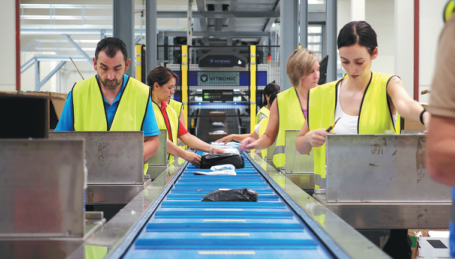
Rhetoric rebutted
But Chinese officials do not buy the argument.
"'De-risking' and 'reducing dependence' should not evolve into throwing away and weakening cooperation," China's Foreign Ministry spokesman Wang Wenbin said on Nov 30.
Von der Leyen's announcement in her State of the Union Address on Sept 13 that the EU will launch an anti-subsidy investigation into EU imports of battery electric vehicles has caused an uproar in China.
China's Ministry of Commerce spokesman He Yadong said the investigation process is not transparent and the results are unfair. He described the measure as "a discriminatory approach" toward Chinese electric vehicle makers and is "suspected of violating World Trade Organization rules". He also urged the EU to abandon trade protectionism.
The German Association of the Automotive Industry is also critical of the EU investigation, fearing that it could trigger a tit-for-tat trade war between the EU and China.
Cora Jungbluth, a senior expert on China and the Asia-Pacific at the private foundation Bertelsmann Stiftung in Germany, said the case of China's EV industry is much more complex, and its rise should not be attributed to only subsidies, but more importantly, the early start such as in the promotion of battery systems in China's five-year plan.
China became the world's largest market for EV sales last year, with a share of 60 percent. Meanwhile, it accounted for 35 percent of EV exports. They included foreign carmakers such as Tesla that jumped on the Chinese bandwagon.
Jungbluth does not believe that the EU's threat of imposing anti-dumping duties on Chinese EVs will work.
"The economic success (of the duties) is likely to be limited as the lessons from the solar industry have taught us," she wrote on the foundation's website. Last year, more than 90 percent of the EU's solar panels were imported from China.
Voicing concern
In its annual report released last month, the China Chamber of Commerce to the EU voiced its concern over the EU's anti-subsidy investigation and other discriminatory policies against Chinese companies.
Chinese companies' evaluation of the EU's business environment has declined for the fourth consecutive year because of the bloc's "de-risking" strategy and its policy measures targeting Chinese investors.
The report warned the EU not to politicize critical business matters, particularly in key areas such as information and communication technology, EVs and renewable energy. The EU's description of Chinese telecom company Huawei as a "high-risk vendor" has been viewed as discriminatory.
Unlike her previous rhetoric which is heavy in ideology, von der Leyen has now placed more emphasis on economic and trade issues, especially the EU's trade deficit with China.
She said Europe will not tolerate its soaring trade imbalance with China forever.
China has argued that the trade deficit is a result of the growing competitiveness of Chinese products in the global marketplace, the EU's export control on high-tech products to China and the fact that many EU companies that invested in China are exporting their products back to Europe.
Wang Wenbin said China has a trade surplus with the EU on the surface, but a substantial part of profits was pocketed by European companies.
"China has never deliberately sought to maintain a trade surplus," he said.
Lai said the future development of China-EU relations will also be affected by next year's election results of the European Parliament and US president.
"Uncertainty is high," Lai said. "One thing I am certain, that is China-EU relations will get even more complicated."

"Seek knowledge even if you have to go as far as China" is the first Arabic proverb I learned when studying the language during my college years.
The saying highlights the Arab tradition of valuing knowledge and the pursuit of truth. It also reflects the admiration for China as a civilization.
More than 2,000 years ago, the civilizations of China and the Arab states, located on opposite ends of the Asian continent, forged a deep connection.
Through the ancient Silk Road, China's advancements in porcelain, papermaking and printing spread westward, while Arabic achievements in astronomy, calendar systems and medicine traveled eastward.
Historical records preserve the old tales of friendship. The fifth-century book Houhanshu (Book of Later Han[25-220]) mentioned Gan Ying, a Chinese envoy, "facing the Western Sea to look at the Great Qin (Han Dynasty term for the Roman Empire)". This marks the earliest documented evidence of Chinese envoys reaching the Gulf region.
About 700 years ago, Wang Dayuan of the Yuan Dynasty (1271-1368) arrived in Mecca and described the city as "a combination of landscapes, a spring of four seasons, fertile fields and rich rice, and happy residents". His book Daoyi Zhilue (Brief Account of Foreign Countries and Isles) became an important document for China to understand ancient Saudi Arabia. Zheng He of the Ming Dynasty (1368-1644) made many voyages to Jeddah, Medina and other places in Saudi Arabia.
Since the founding of the People's Republic of China, the two sides have been supporting each other on the path of pursuing national independence and development.
This time, the peace deal brought the world's attention to the mediator China again.
It echoes the old Arabic proverb, with analysts saying the agreement is the acceptance and welcoming response to China-proposed initiatives on security, development and civilization in the Middle East.
The book, The Future of China's Rise and the Arabs: Follow Civilization, written by Jordanian scholar Samir Ahmed and published in 2009, provides us with a perspective of how the Arabs see modern China's development.
In the book, Samir said the Arab rejuvenation should learn from China's development experience.
He believed that the two civilizations could support each other, thereby realizing the "Chinese Dream" and the "Arab Dream".
From a smaller perspective, the positive perception of China among the younger generation of Arabs is also evident.
In a survey of Arabs aged 18 to 24 in 53 cities across 18 Arab countries this year, 80 percent of respondents viewed China as an "ally", surpassing that of the United States. The survey was conducted by Dubai-based public relations company Asda'a BCW from March 27 to April 12.
I reached out to my Saudi friend, Rahaf Alshanqit, who just graduated from Cairo University's Chinese language department, for her opinion on the poll results.
"In our society, there is a growing interest in Chinese language and pop culture. Many Arab youths view China as distinct from the West and are drawn toward it," she said.
I could see this trend reflected in Rahaf's music playlist, which was filled with Chinese songs.
After the peace deal was reached in March, Rahaf reposted the news on her Sina Weibo account, saying: "Thank you China. It is unbelievable!"
I asked her, as an ordinary Saudi Arabian, what does your country's decision mean to you?
"It means a new travel destination! Now Iran has become my next travel destination," she said. "We support our government in every way."
Well, indeed, no matter what kind of ideology a country has and what form of government a country has, the policies always aim to benefit its people's way of life.
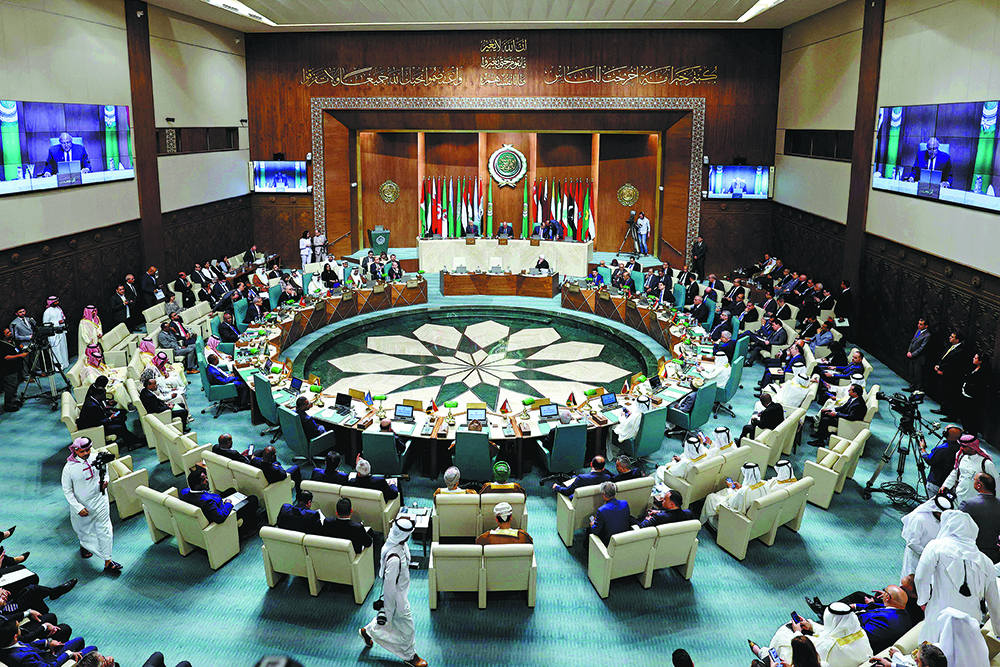
Experts applaud China's mediation in Saudi-Iran deal as best practice of Global Security Initiative
Footage aired on Saudi Arabia's Al Ekhbariya TV shows Iran's President Ebrahim Raisi, wearing a traditional Palestinian keffiyeh scarf, greeting Saudi officials at the King Khalid International Airport in Riyadh after disembarking from his plane on Nov 11. Raisi was among leaders of the Arab and Islamic states who had gathered for a summit calling for a ceasefire to the current conflict in Gaza.
The visit was labeled a landmark because the summit on Gaza marked the first trip by an Iranian leader to the kingdom in 11 years, thanks to the peace deal reached by the two regional rivals in Beijing on March 10.
Since the conflict began in Gaza on Oct 7, there has been an increase in engagement between the two sides.
On Oct 12, leaders of the two countries spoke by phone and expressed their support for the Palestinian people. Additionally, the invitation to Raisi to attend the Arab Islamic summit last month represents the highest level of interaction between the two sides since the March reconciliation.
Saudi Arabia and Iran have for long been at odds with each other, with differences rooted in philosophical and political ideologies, especially after Riyadh severed ties with Teheran in early 2016.
Experts have noticed that in the Middle East, there is an increasing sense of autonomy, and countries there are more inclined to pursue a balanced strategy that maximizes their own interests. They also attribute the changes to external conditions that partly contribute to this shift.
Washington's role cannot be ignored, said Liu Xinlu, dean of the School of Arabic Studies at Beijing Foreign Studies University. "The sufferings and chaos caused by White House policies have long upset the region."
Liu cited the so-called democratic transformation during the George W. Bush administration, the military withdrawal from Iraq during the Barack Obama administration, and the so-called offshore balance policy under the Joe Biden administration.
"It is the hegemonism, power politics and a Cold War mentality that lie behind all of these policies. Western countries prioritize their own interests at the expense of Middle Eastern countries, only causing regional chaos and turmoil," he said.
As a result, some Gulf nations that have long adopted pro-Western policies, including Saudi Arabia, have experienced "rifts" with Washington. In response, they have undertaken various measures to strengthen their ties with other major powers, Liu said.
Jiang Yingmei, a researcher at the Institute of West Asian and African Studies, Chinese Academy of Social Sciences, said Saudi Arabia has shifted its focus to domestic economic development and transformation.
For instance, in 2016, Saudi Arabia introduced Vision 2030, a strategic initiative aimed at diversifying its economy away from reliance on oil revenues. This plan includes the implementation of significant infrastructure and tourism projects.
When Saudi Arabia's Ambassador to Teheran Abdullah bin Saud al-Anzi arrived in Iran, he highlighted the importance of Vision 2030, saying it provides a road map for both countries to enhance their cooperation.
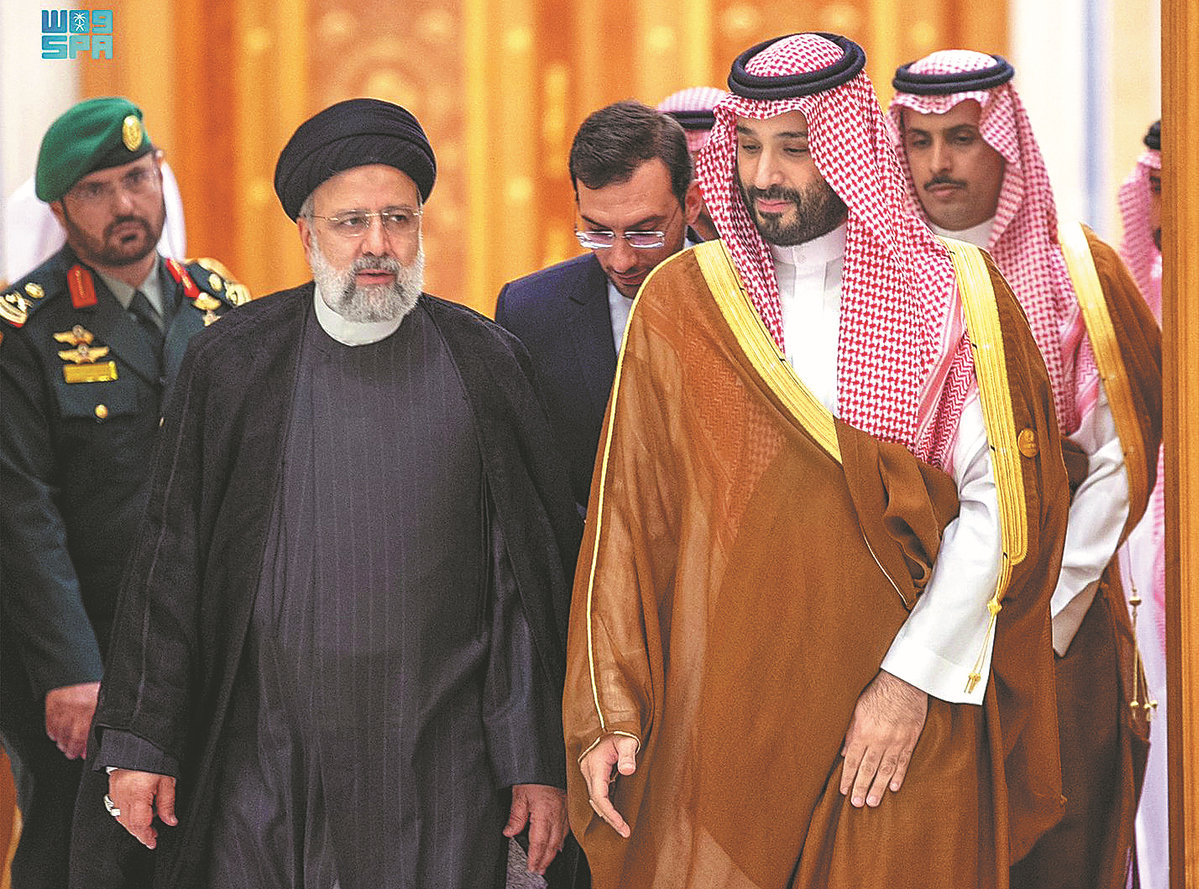
Unity urged
It is also a must for Saudi Arabia to unite all Gulf and even Middle Eastern countries, while taking measures to prevent external interference, to position itself as a "global power", said Li Shijun, an assistant researcher at the China-Arab Research Center on Reform and Development, Shanghai International Studies University.
"By doing so, Saudi Arabia can exert significant influence in international affairs," Li added.
Jiang said, "As for Iran, which has long been subjected to US sanctions and is facing internal and external pressures, a reconciliation at this moment could not only alleviate tensions with neighboring countries but also serve as a breakthrough to alleviate the pressure of US sanctions."
Since the reconciliation deal was clinched, the role that China played in mediation has won praise from around the world.
Experts view the deal as a sign of increasing trust in China among Middle Eastern countries, and as an example of effective diplomacy within the Global Security Initiative.
According to Saudi analyst Jasser al-Jasser, China's involvement was a significant factor in the reconciliation between Saudi Arabia and Iran, given Beijing's strong ties with both Riyadh and Teheran.
The two regional giants are participants in the Belt and Road Initiative, and China serves as the largest trading partner for both.
"The successful mediation of China stems from the goodwill, fairness and justice principle and increasing political mutual trust that China has upheld for a long time in the affairs of the Middle East," Jiang said.
For example, in addition to the Saudi-Iran detente, China has always maintained a fair stance on the Palestine-Israel conflict.
On Nov 15, as the rotating president of the United Nations Security Council, China pushed the Security Council to pass its first relevant resolution since the latest round of conflict broke out.
The resolution called for an emergency humanitarian pause and the establishment of a humanitarian corridor throughout the Gaza Strip.
Zhai Jun, China's special envoy on the Middle East Issue, has visited regional countries regarding the situation since October. He also attended the Cairo Peace Summit on the Palestinian question in Egypt and the International Humanitarian Conference in Support of Gaza in Paris.
Indispensable role
"China is playing an indispensable positive role in promoting peace and negotiations, in clear contrast with US actions since the recent round of the Palestine-Israel conflict broke out," said Li from Shanghai International Studies University.
This choice underscores the profound trust placed in China in the Middle East. It indicates that China's proposals, including the Global Development Initiative, Global Security Initiative, and Global Civilization Initiative, have garnered extensive support within the region, Jiang said.
Liu said, "The Global Security Initiative proposed by China offers wisdom and solutions to help these countries address the root causes of conflicts and achieve long-term peace and stability."
Several Arab nations, including Djibouti and Sudan, have restored diplomatic relations with Iran. Djibouti and Iran announced the restoration of ties on Sept 21 on the sidelines of a UN General Assembly session, while Iran and Sudan came to a similar agreement on Oct 9, ending a seven-year rift.
There is also optimism regarding a reconciliation between Iran and Egypt. During the Arab Islamic Summit last month, Raisi emphasized the importance of unity among Islamic countries and expressed his willingness to develop relations with Egypt. He said his country sees no hindrance to improving ties with the friendly nation of Egypt.
In addition, Bahrain and the United Arab Emirates restored diplomatic relations with Qatar in April and June, respectively.
In another significant regional realignment, Syria made a stunning return to the Arab League in May.
During the meeting between the two presidents, the UAE leader said: "Syria has left its brothers for too long, and now it is time to return to them and to the Arab world."
On May 19, the 32nd Arab League Summit adopted a declaration that welcomed Syria's readmission to the Arab League and emphasized the urgent need to eliminate any external interference in Arab internal affairs.
The Saudi-Iran peace deal holds tremendous potential for both states, the larger Middle East and the greater Eurasian region. However, experts say challenges remain, and it is unlikely these issues would be easily resolved.
The rivalry between Saudi Arabia and Iran is deeply rooted. The struggle for leadership in the Gulf region and the Middle East is one of the core contradictions between the two sides, and it remains unresolved, Jiang said.
Li added that the fragility in their relationship can be seen in crises in Syria and Yemen, as well as in the normalizing of relations with Israel. It will take time to find out to what extent the detente can help resolve the Yemen crisis and the Syrian issue.
Yemen has been one of the countries most affected by differences between Riyadh and Teheran. The two nations supported opposing factions in the Yemeni civil war that broke out in 2014.
On Aug 11, the United Nations said Yemen continues to face a protracted political, humanitarian and developmental crisis after years of fighting between pro-government forces backed by a Saudi-led coalition, and Houthi militias backed by Iran.
